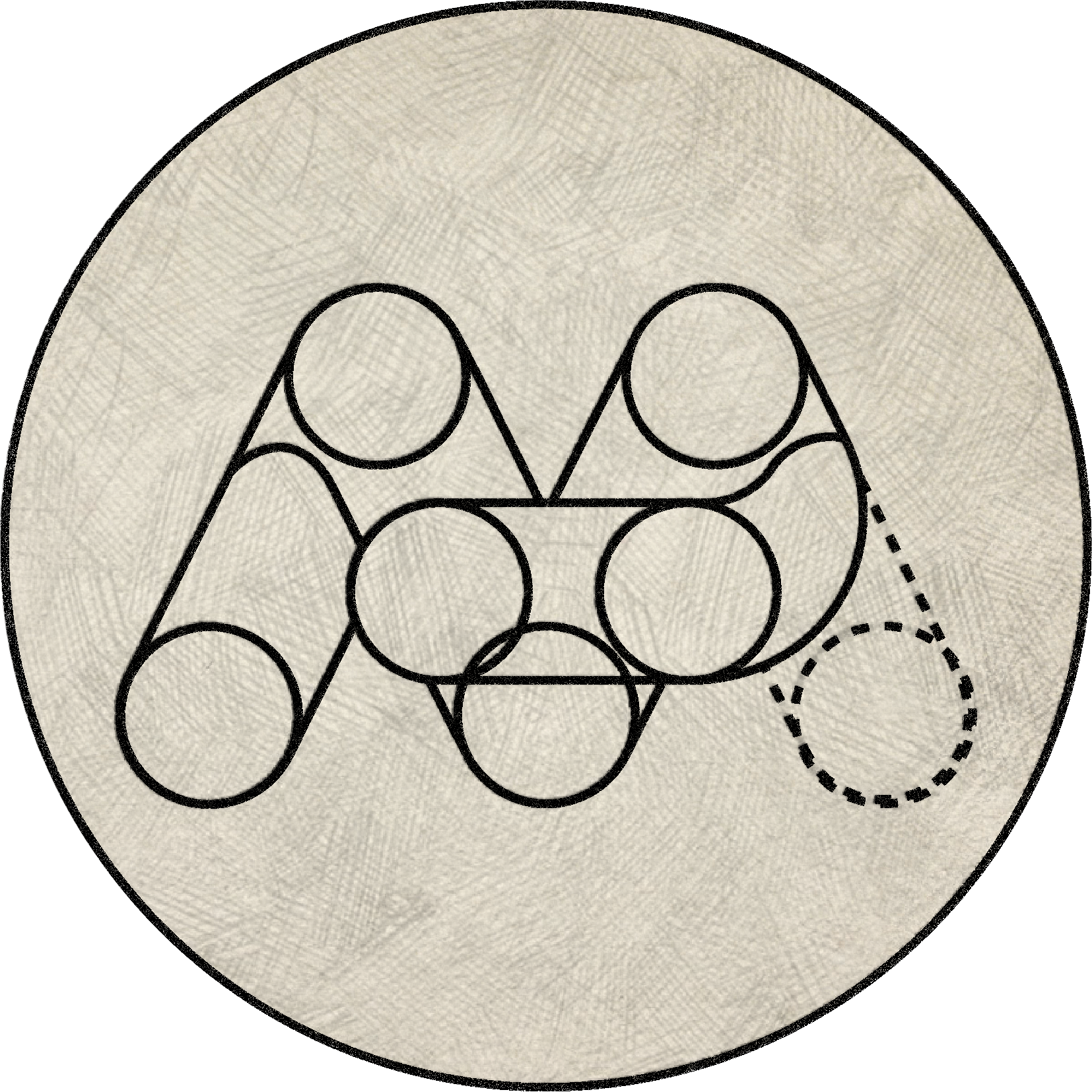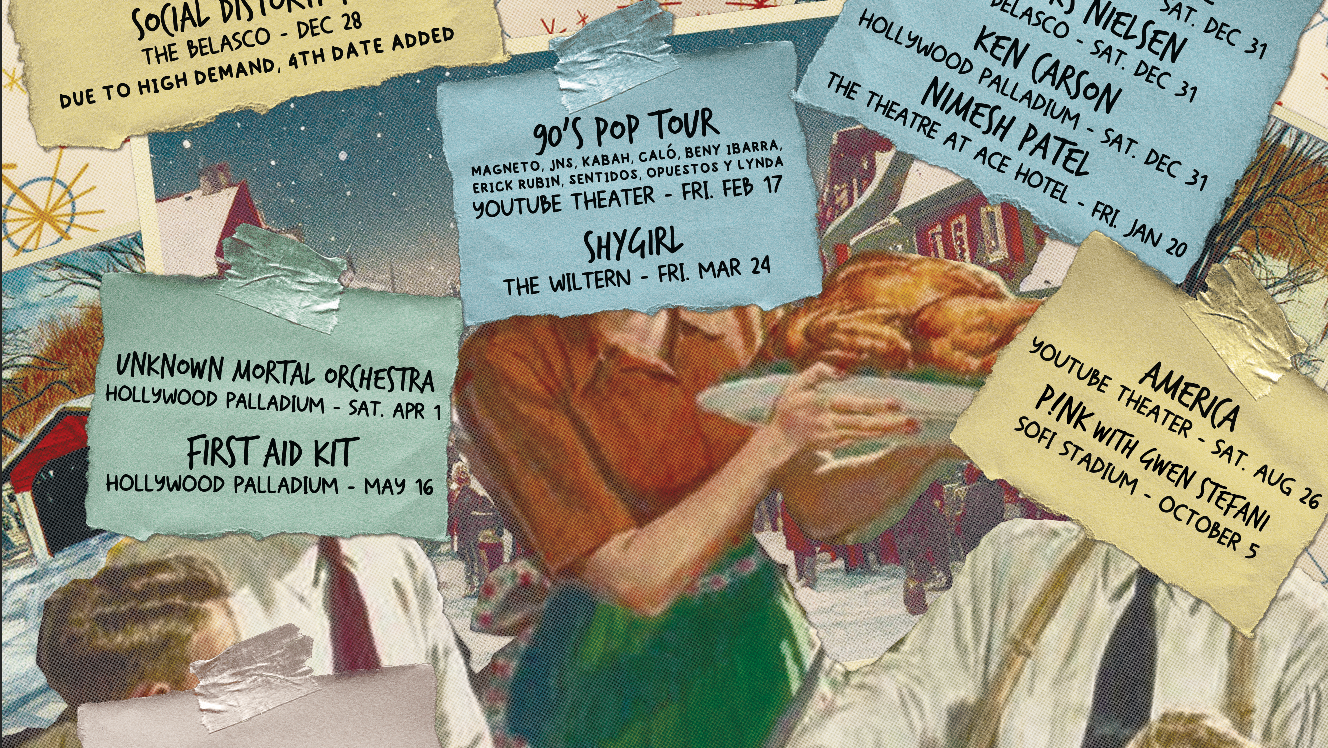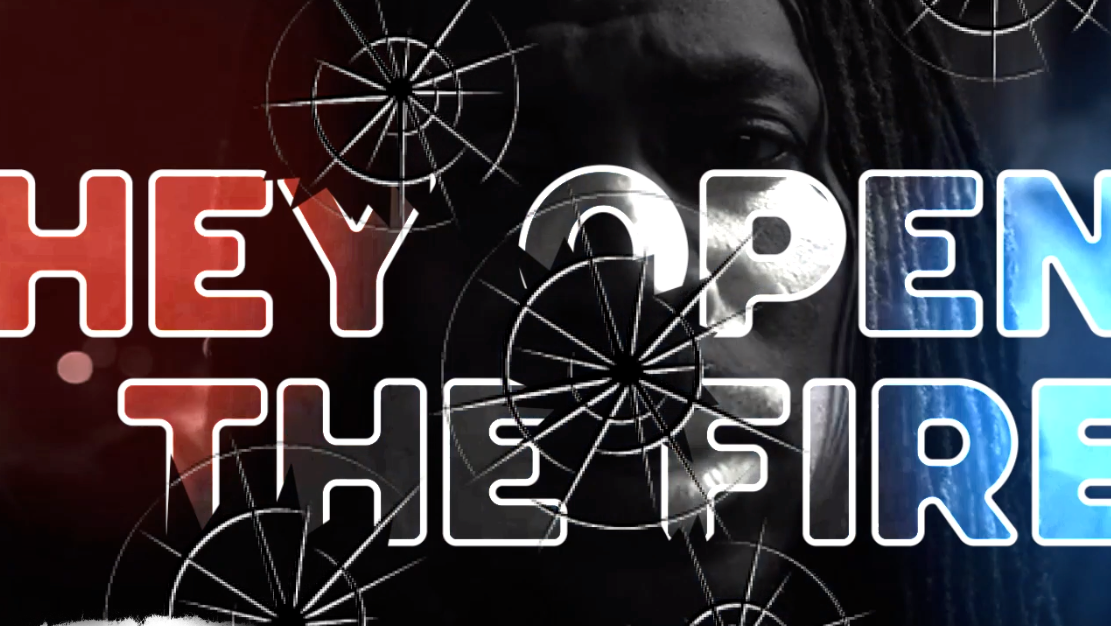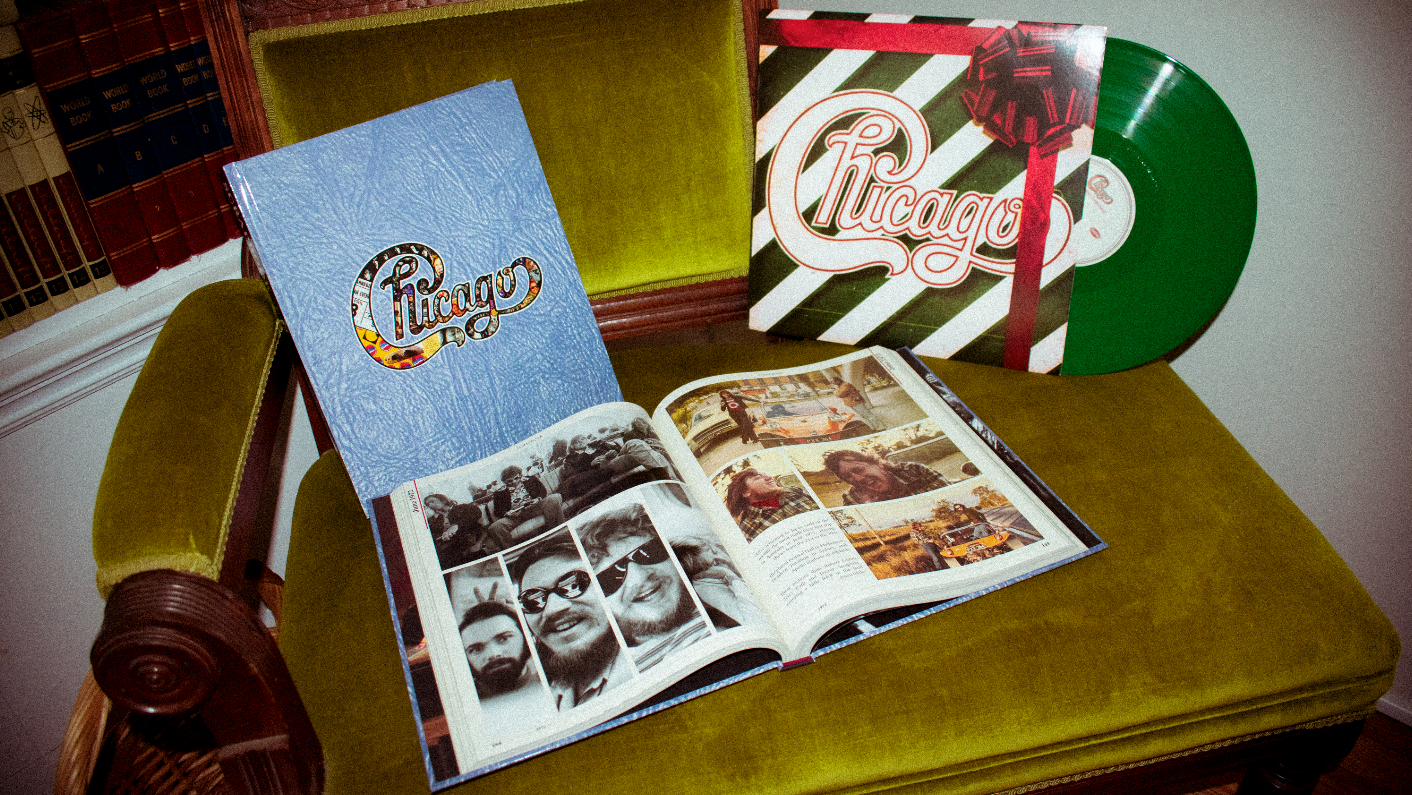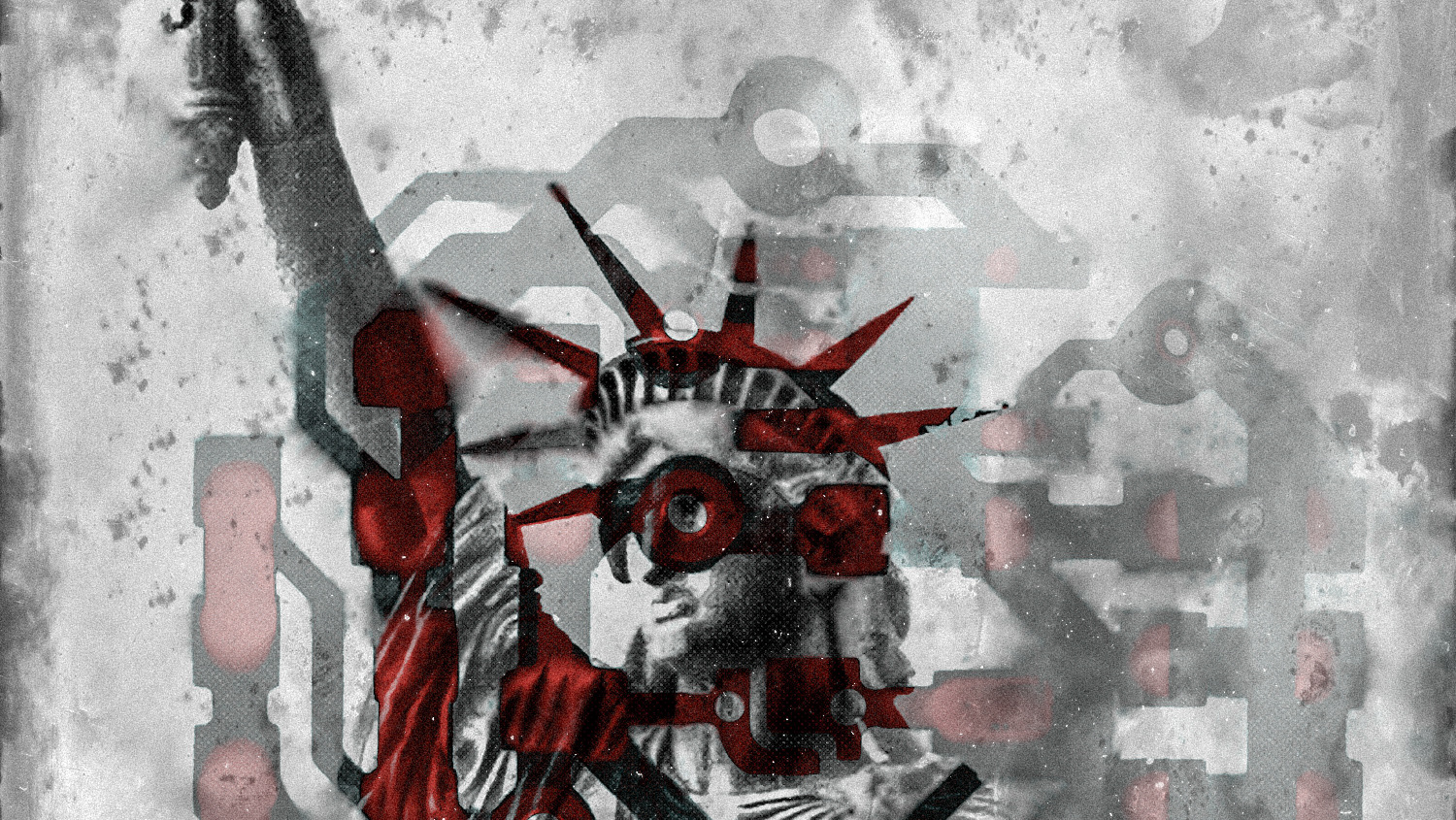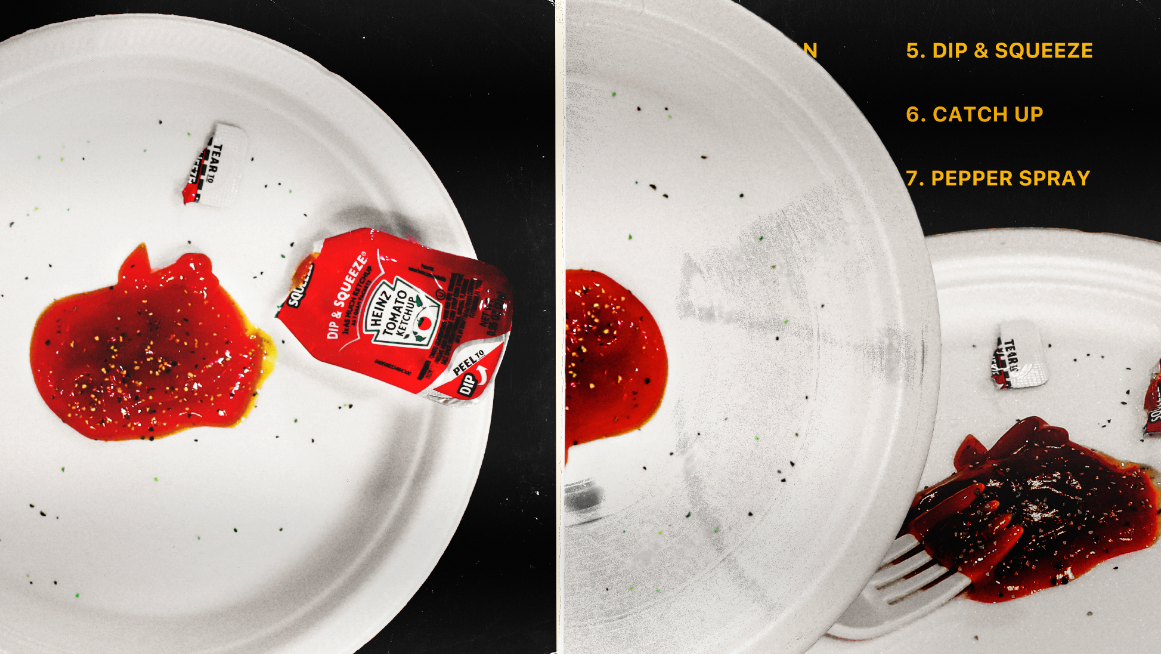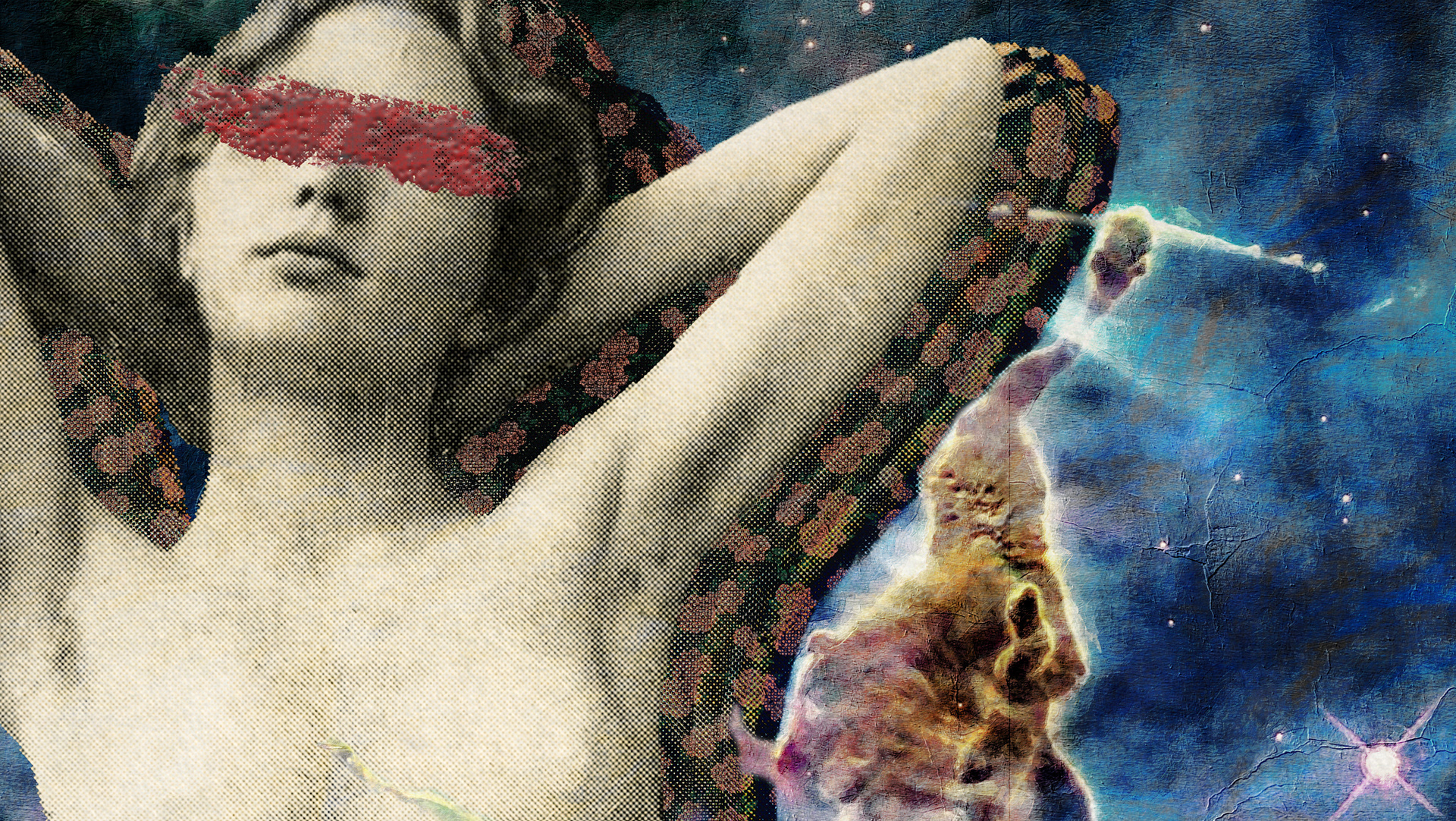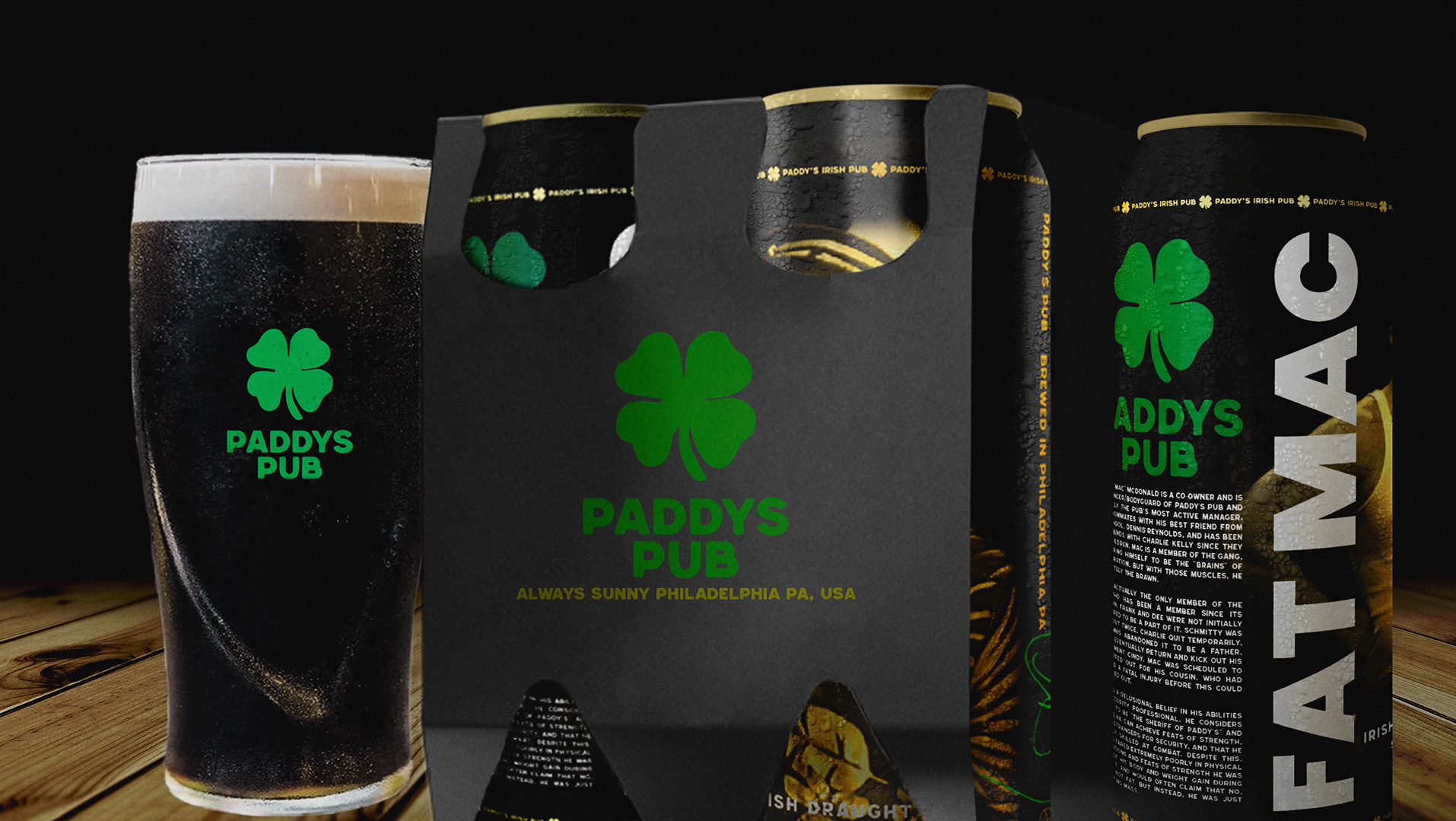Above: Team website made to help display the entirety of the project in one long sheet. This includes everything from the mission statement and project intention in the view of the organization rather than from my view as the creator of the project.
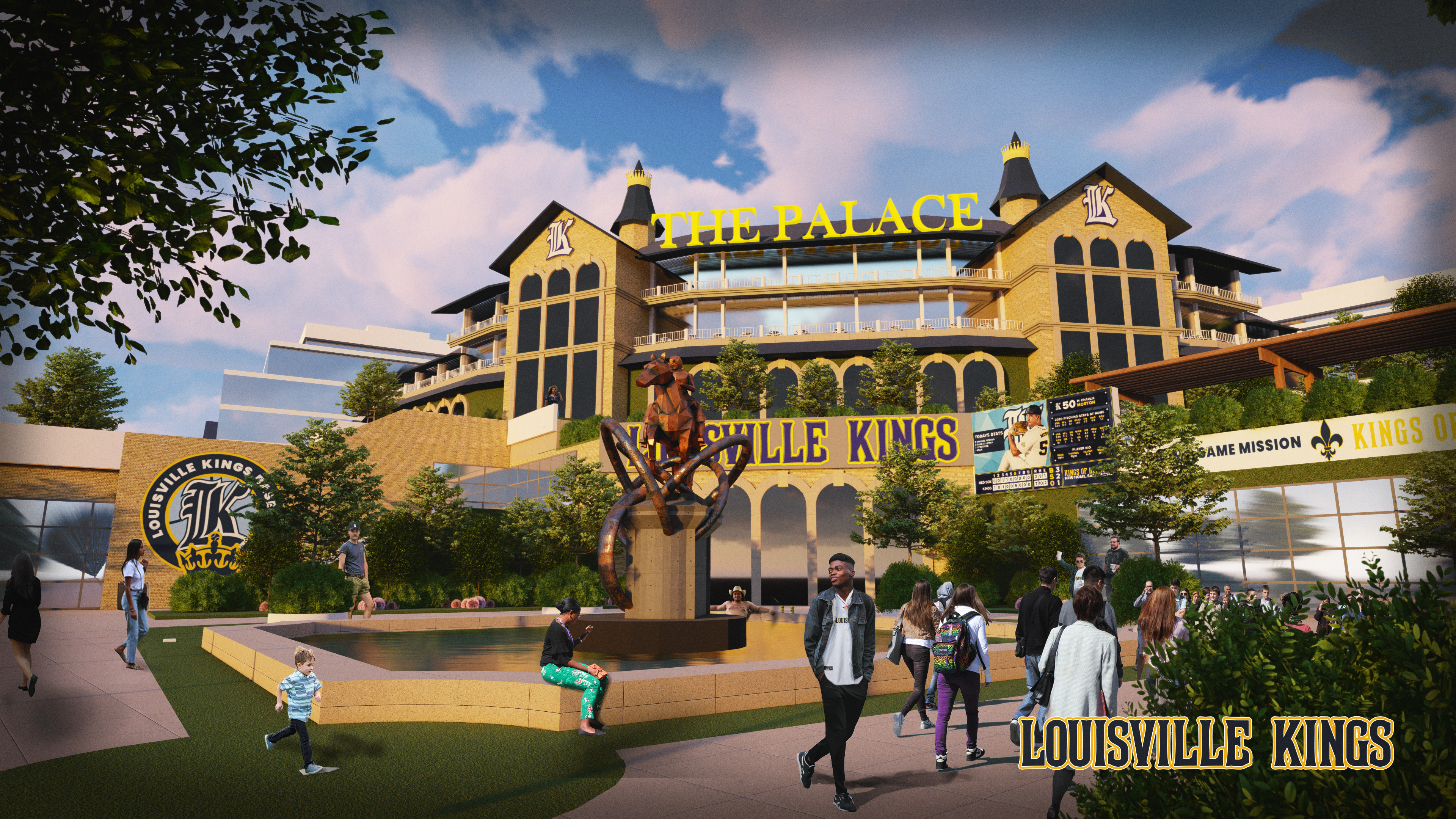
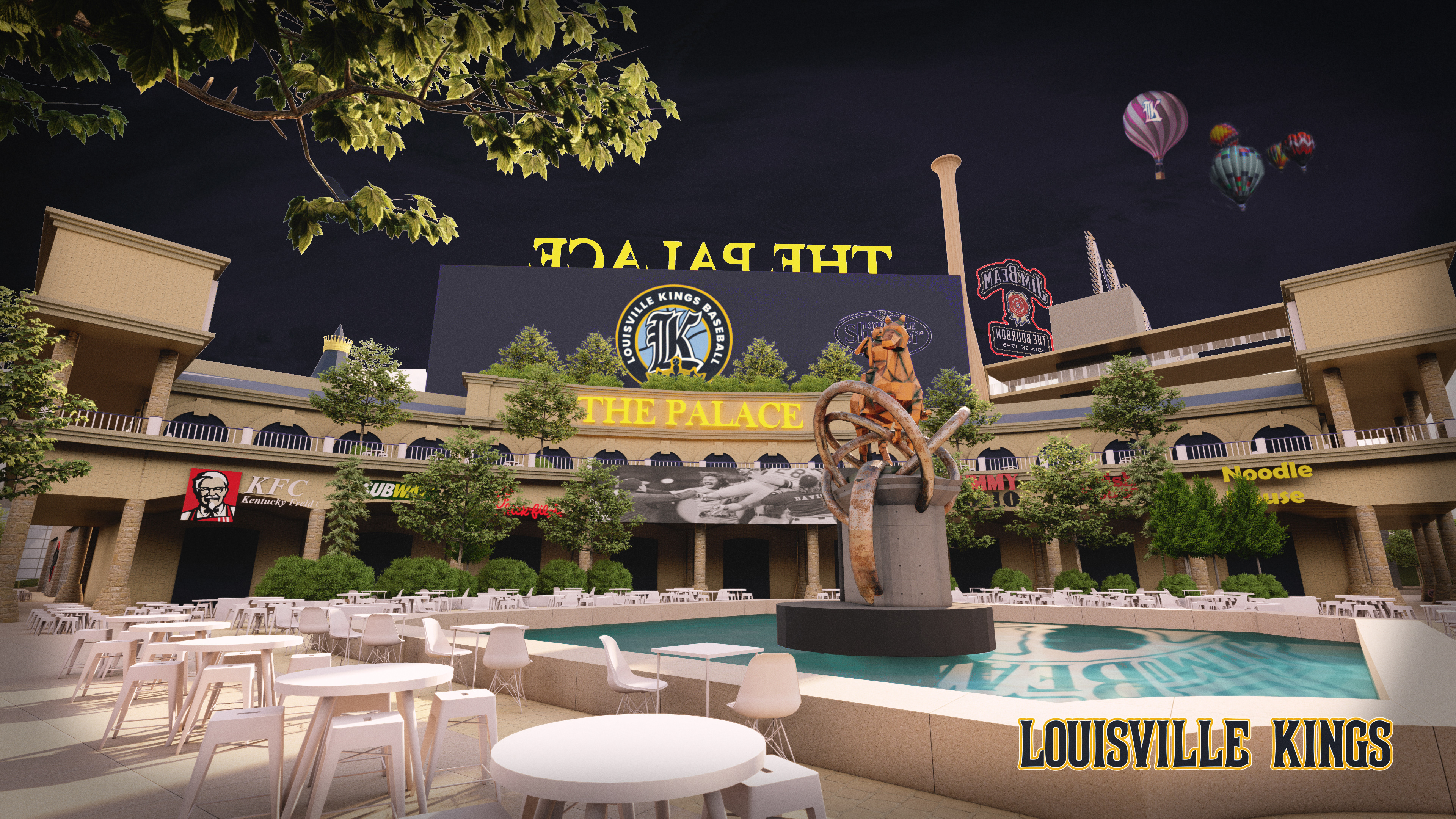
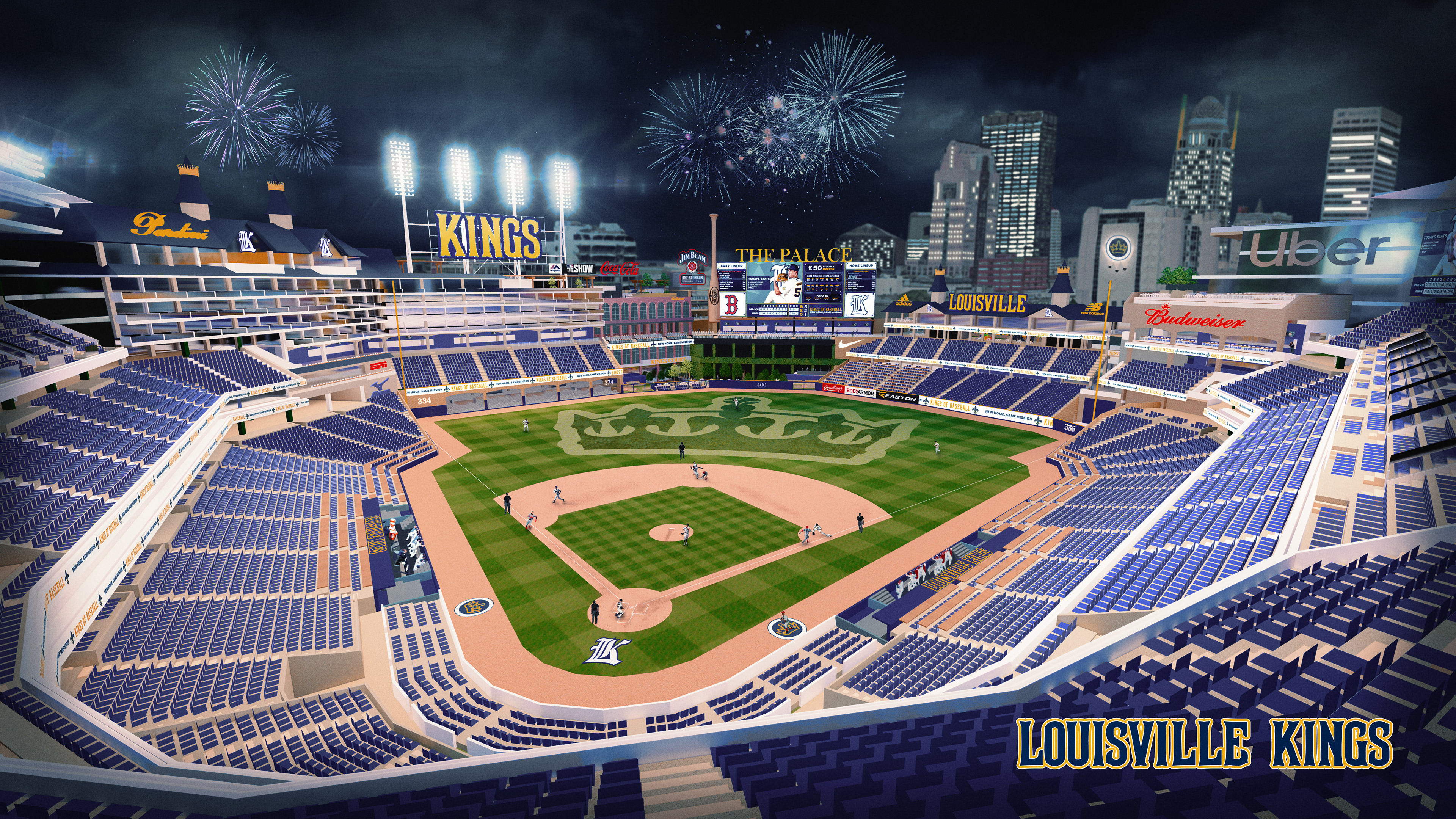
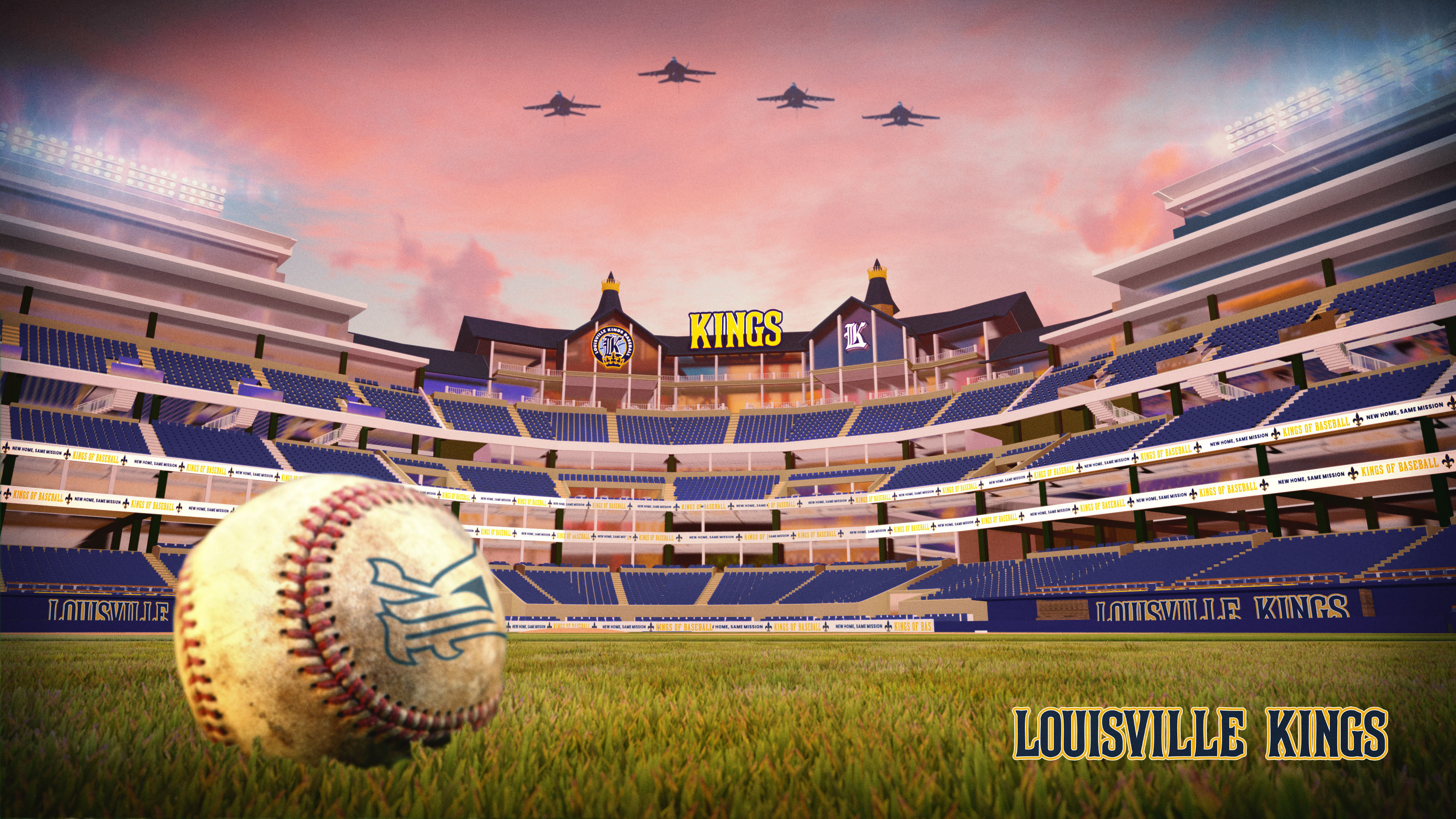
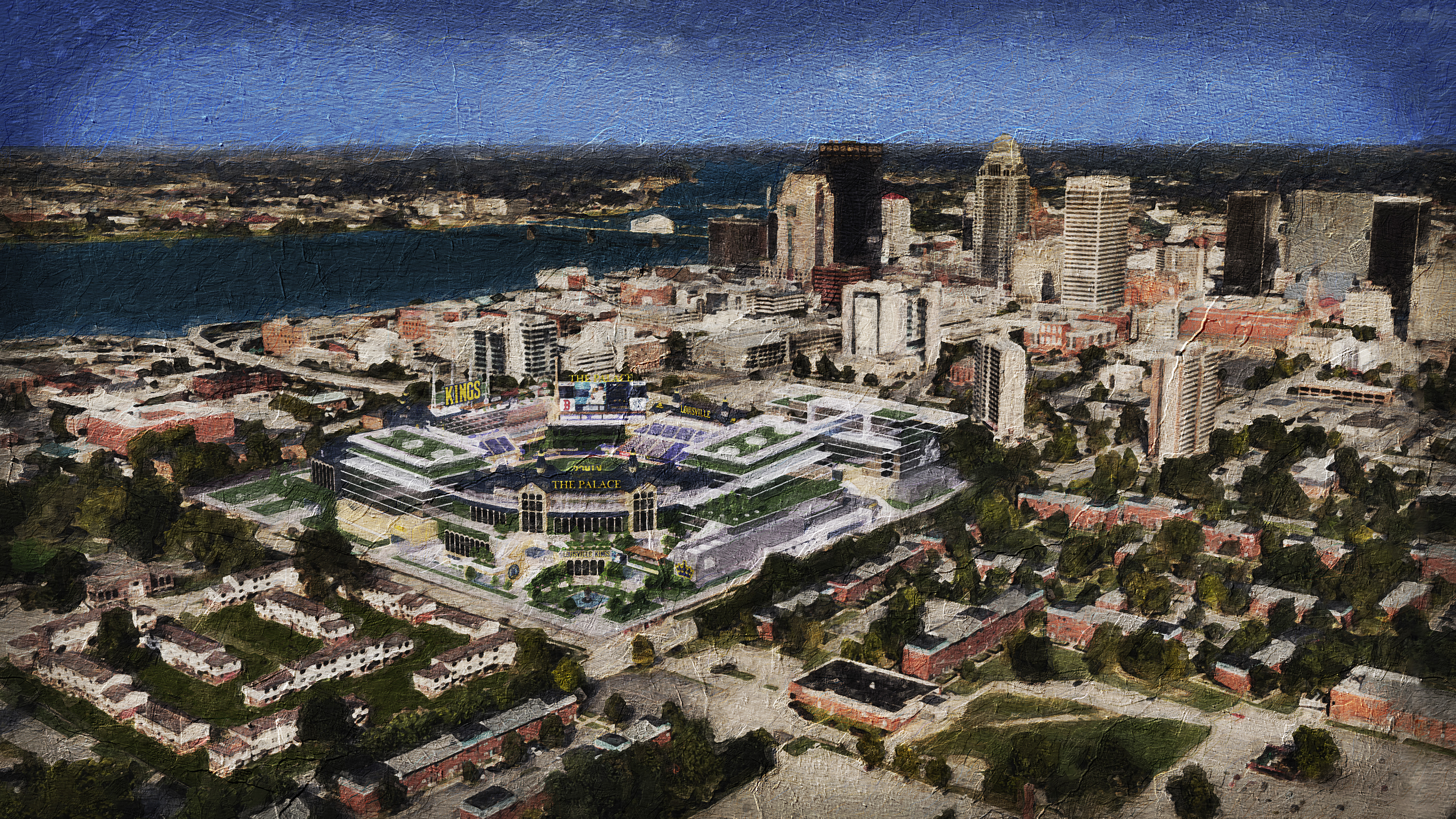
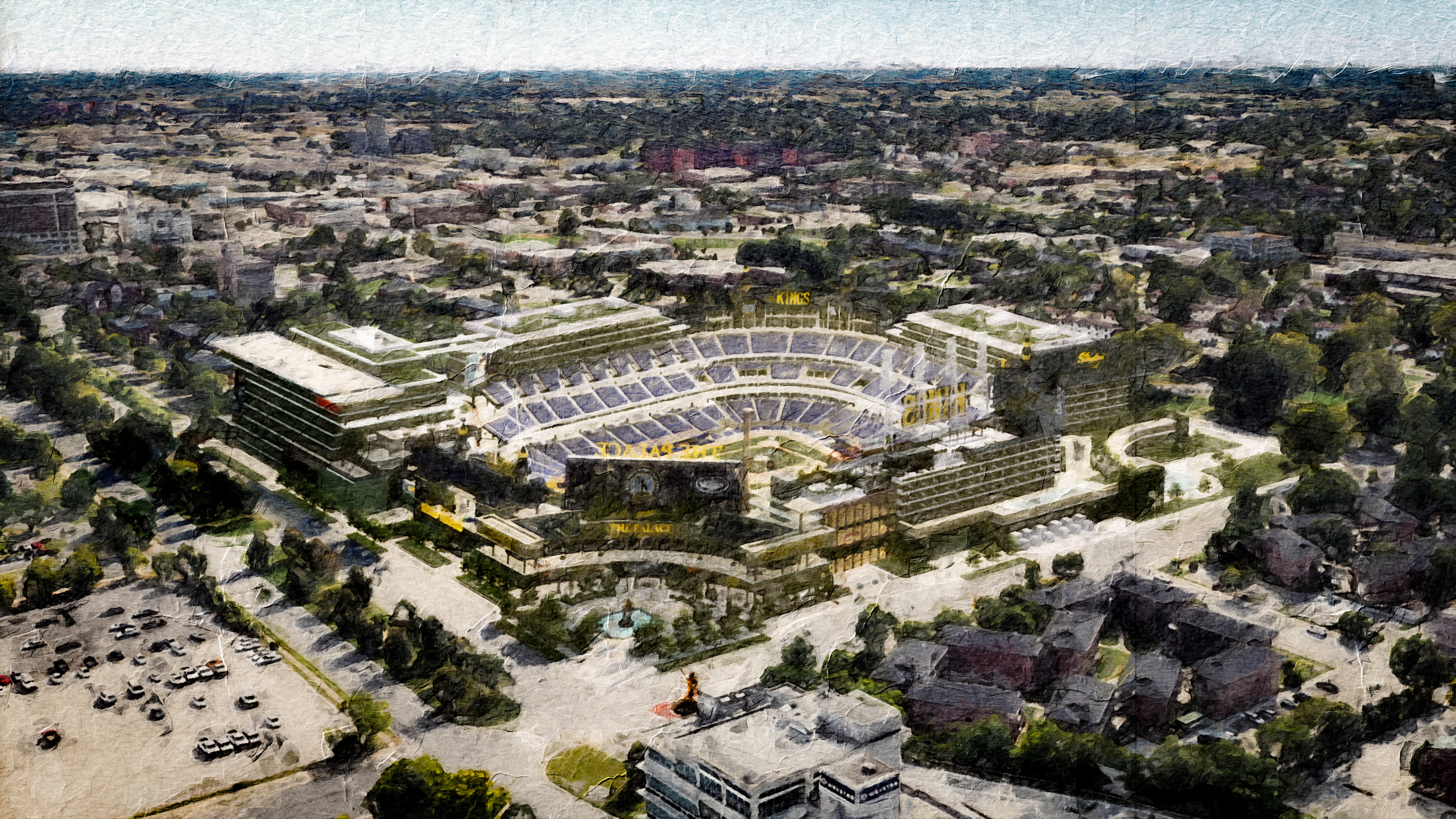
Above: Stadium designed by Benjamin Garcia and art directed by myself made to exemplify and characterize the surrounding Louisville area. The Stadium was carefully placed in the intersection between the bustling downtown area, and the outskirts and small town side of Louisville. This was in an effort to emphasize the connection to everyone in Louisville, not just the commercial downtown side of the city.
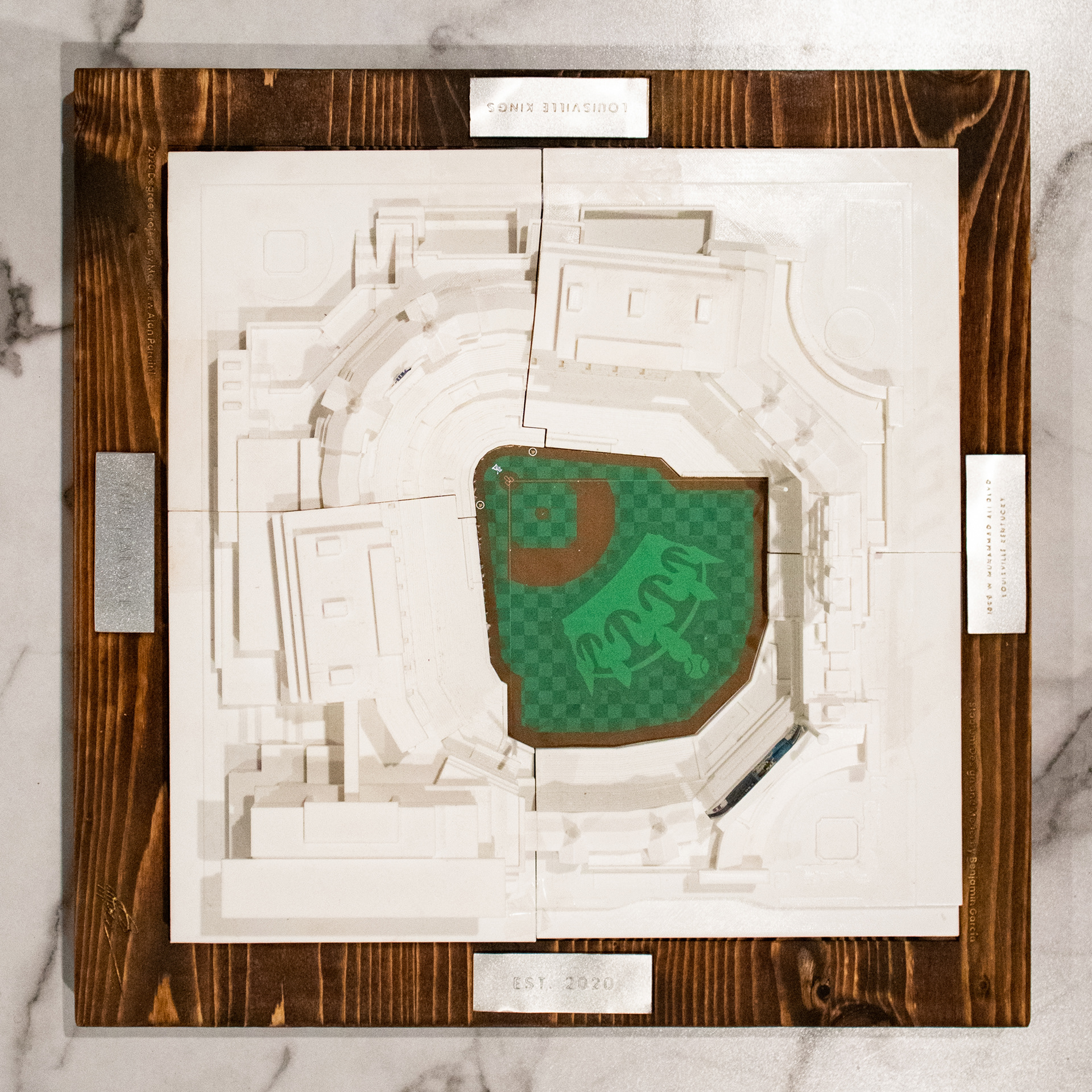
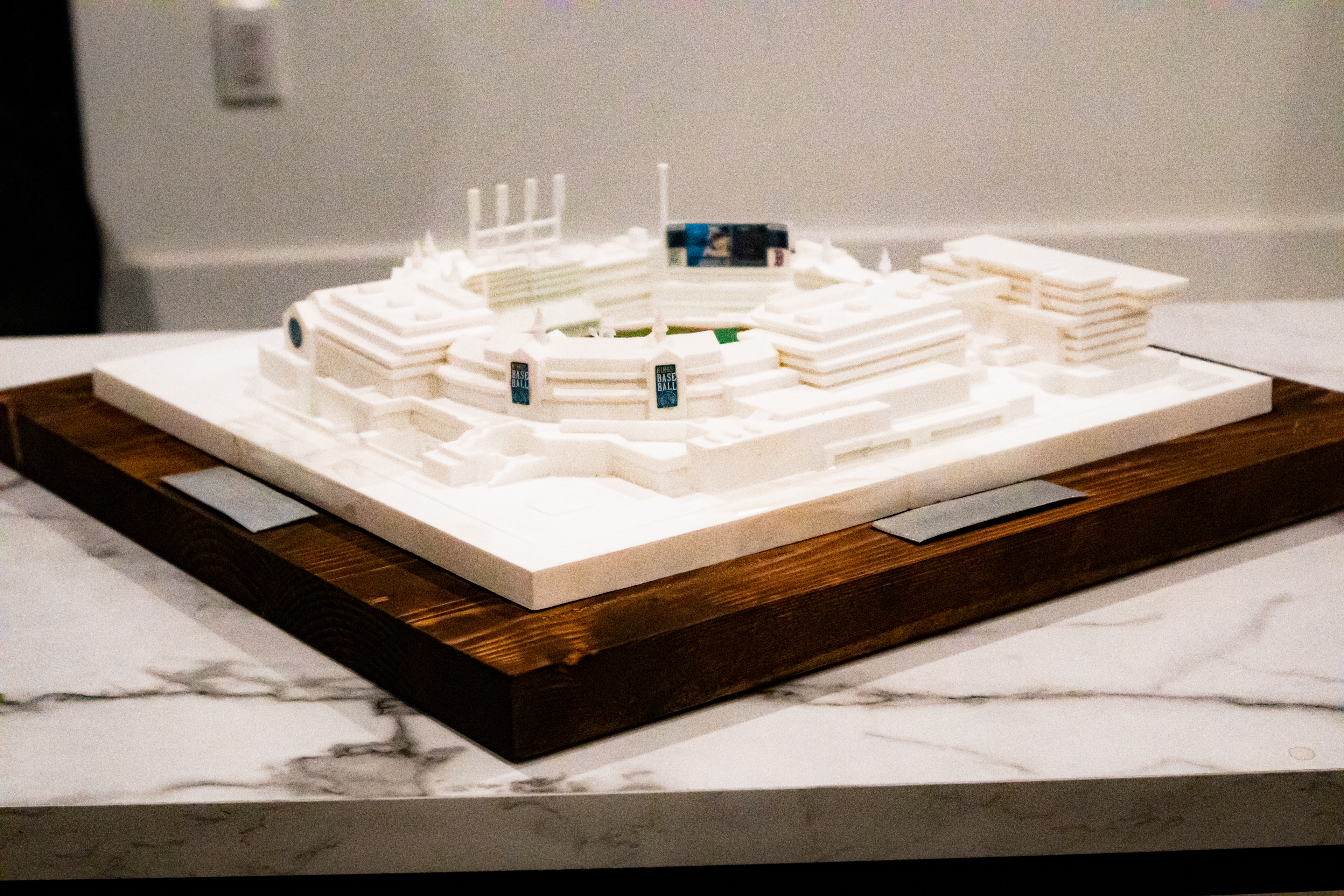
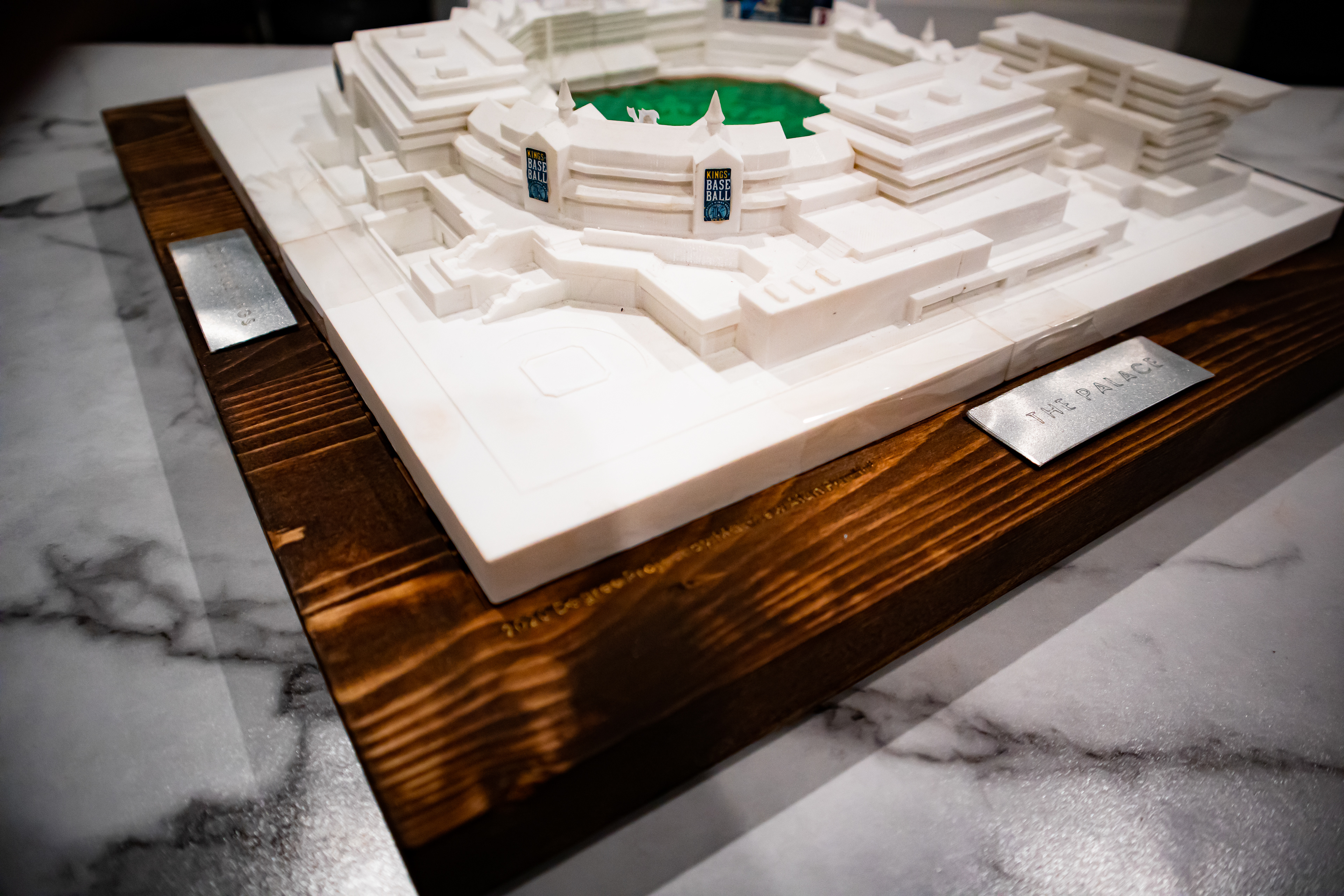
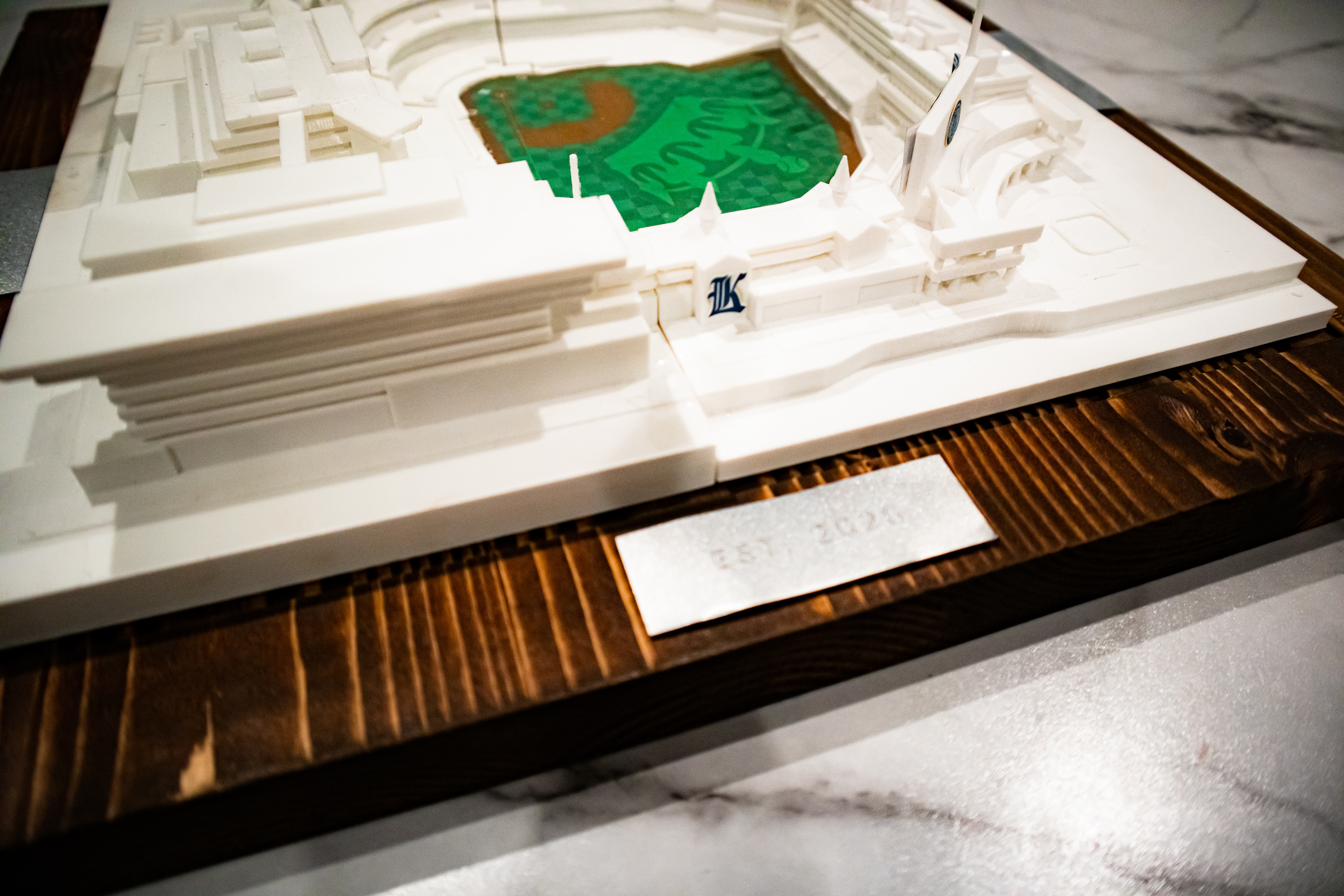
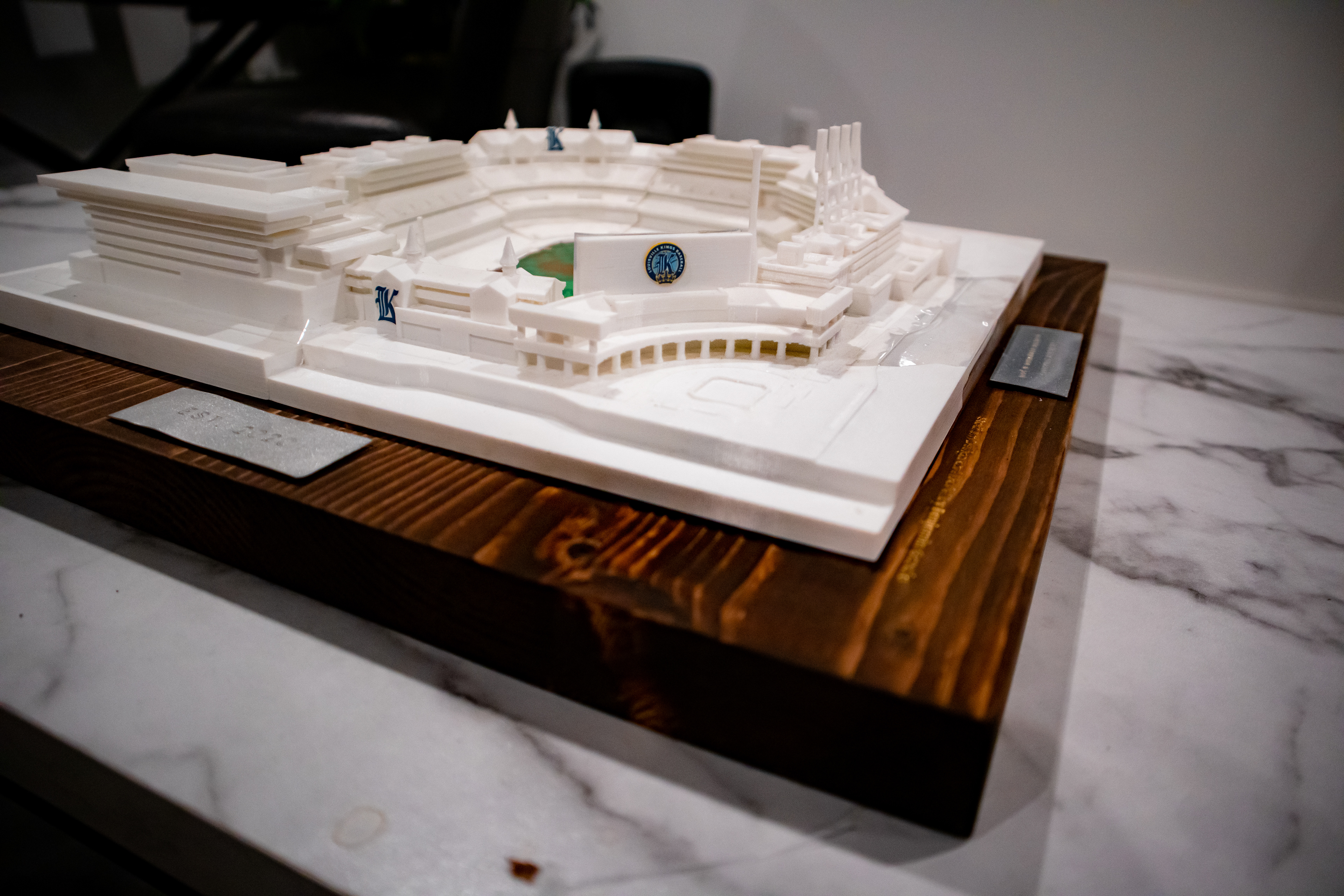
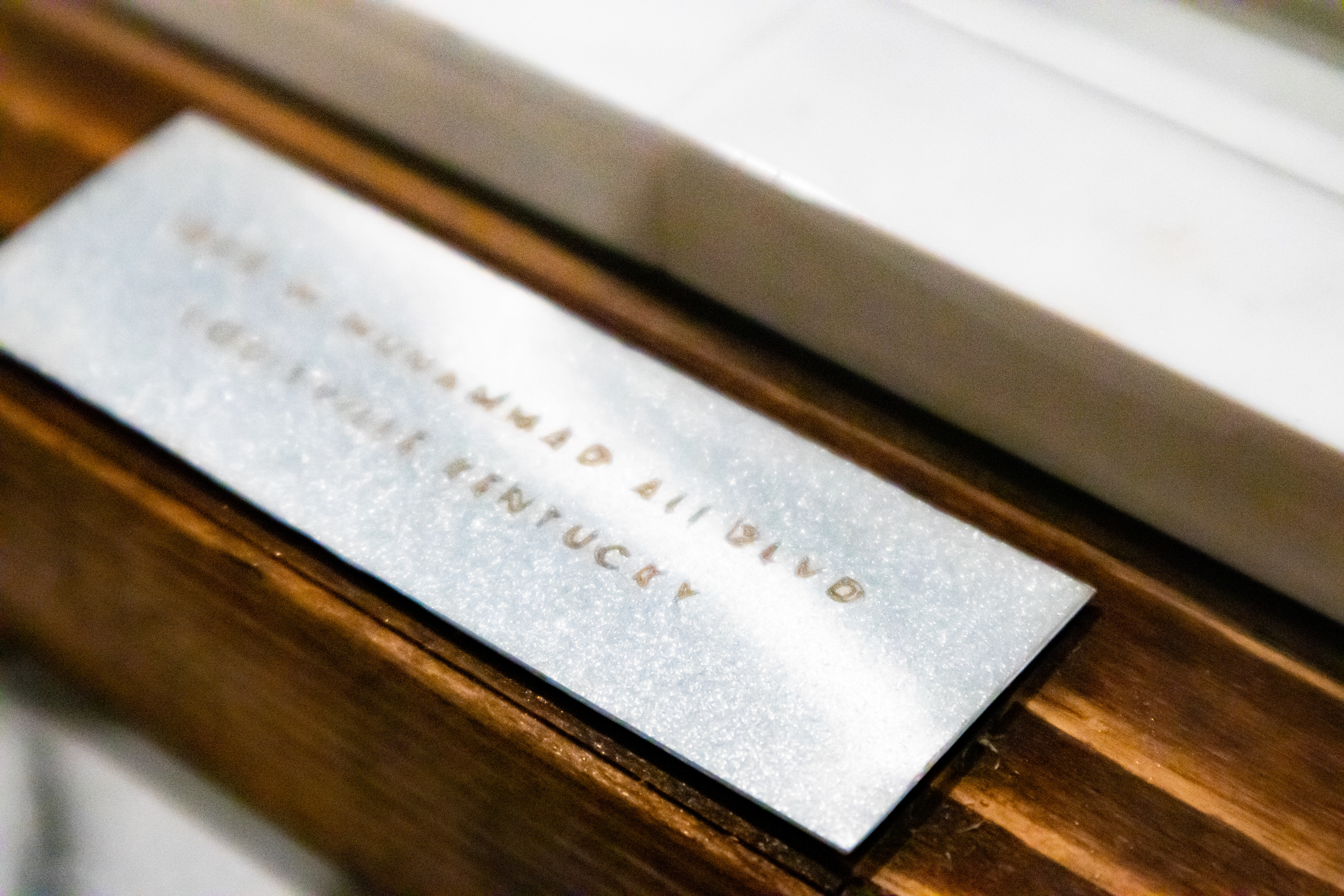

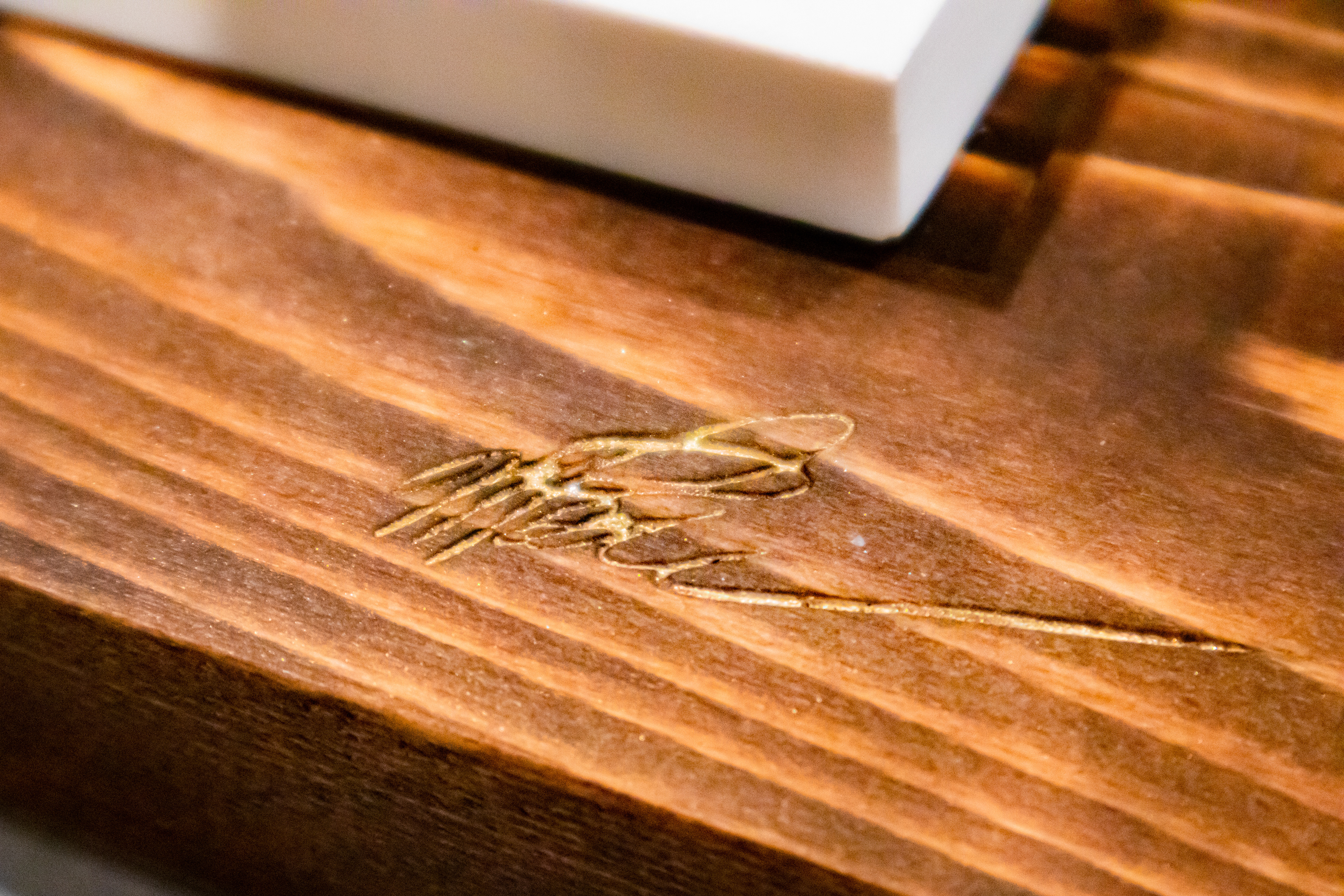

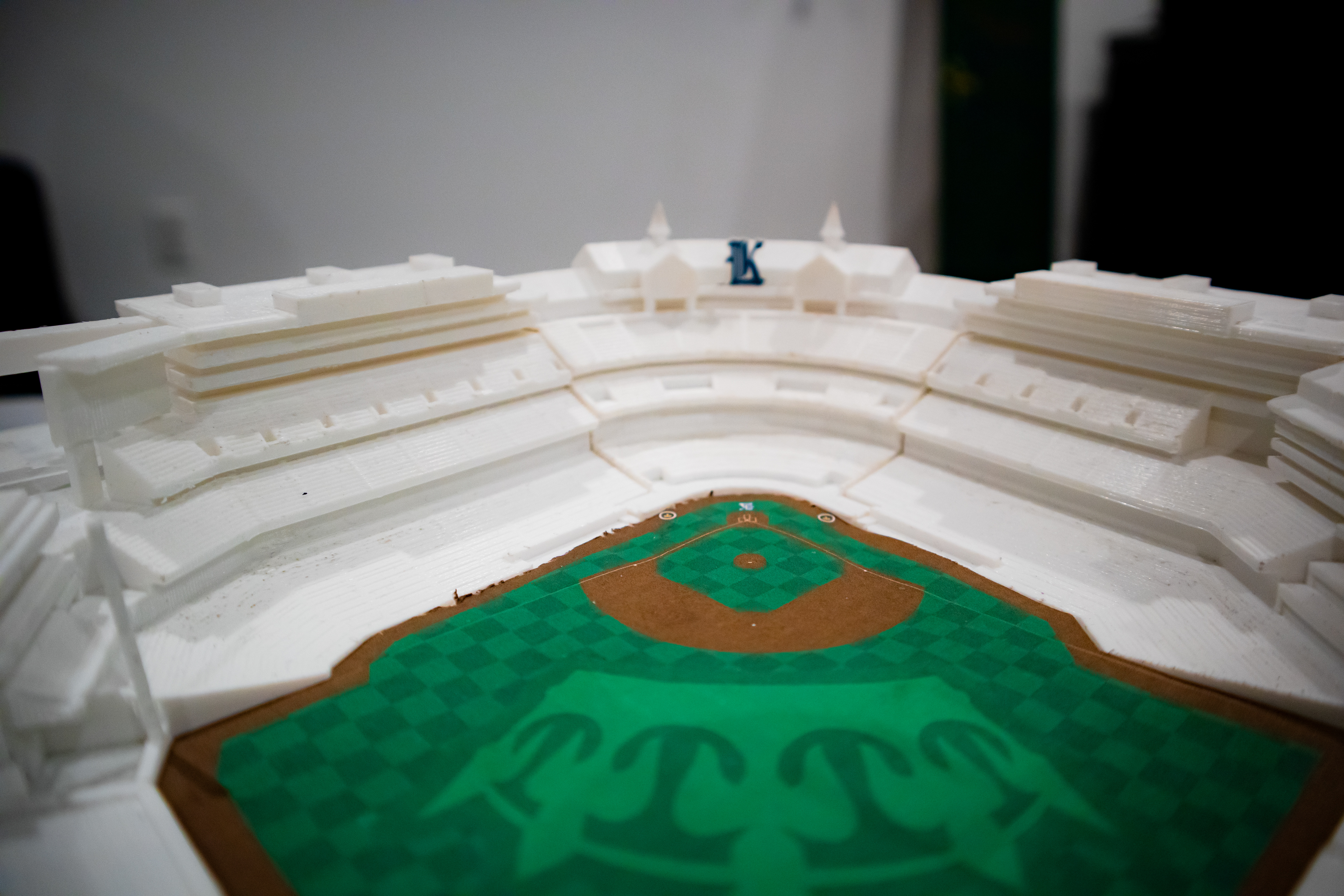
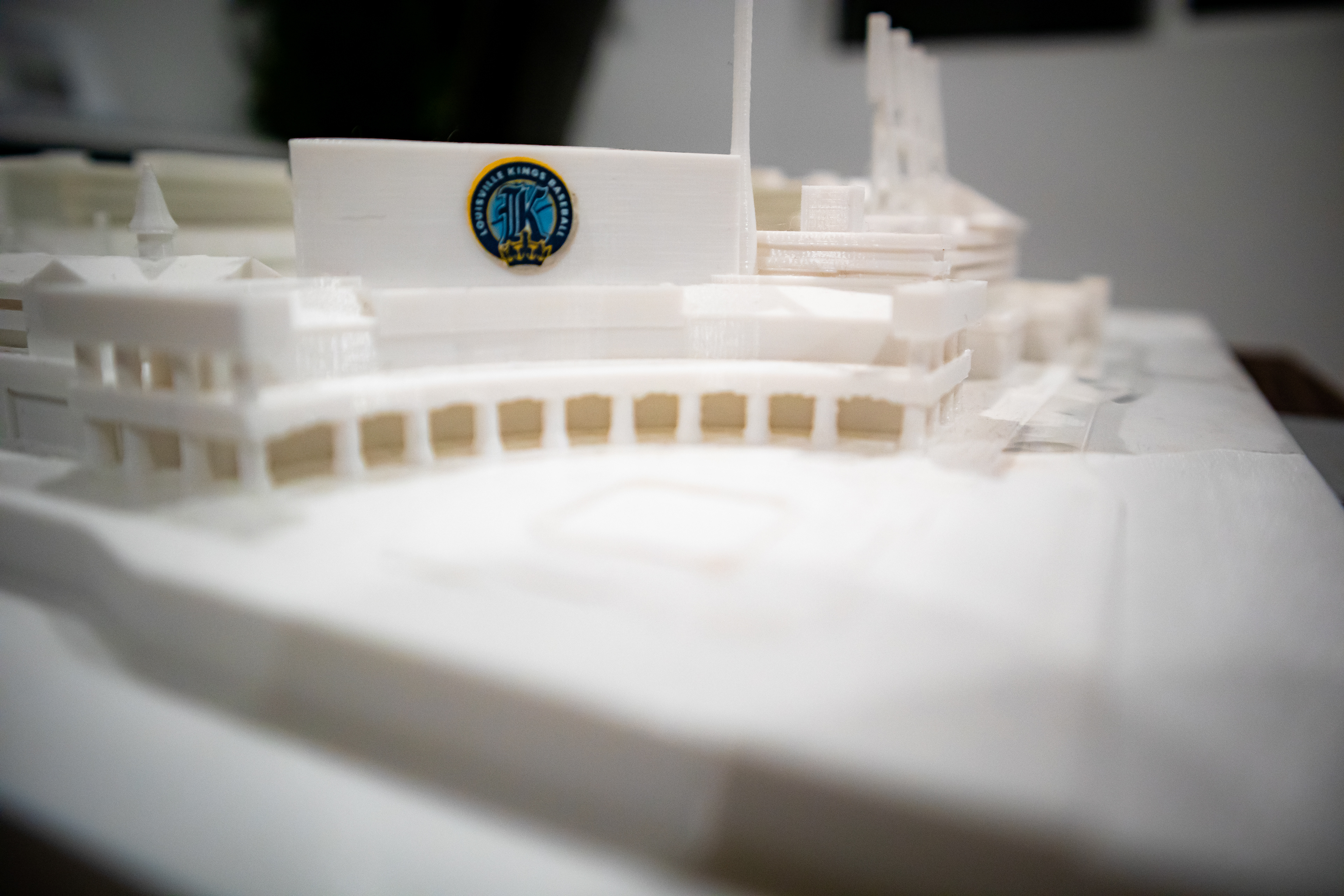
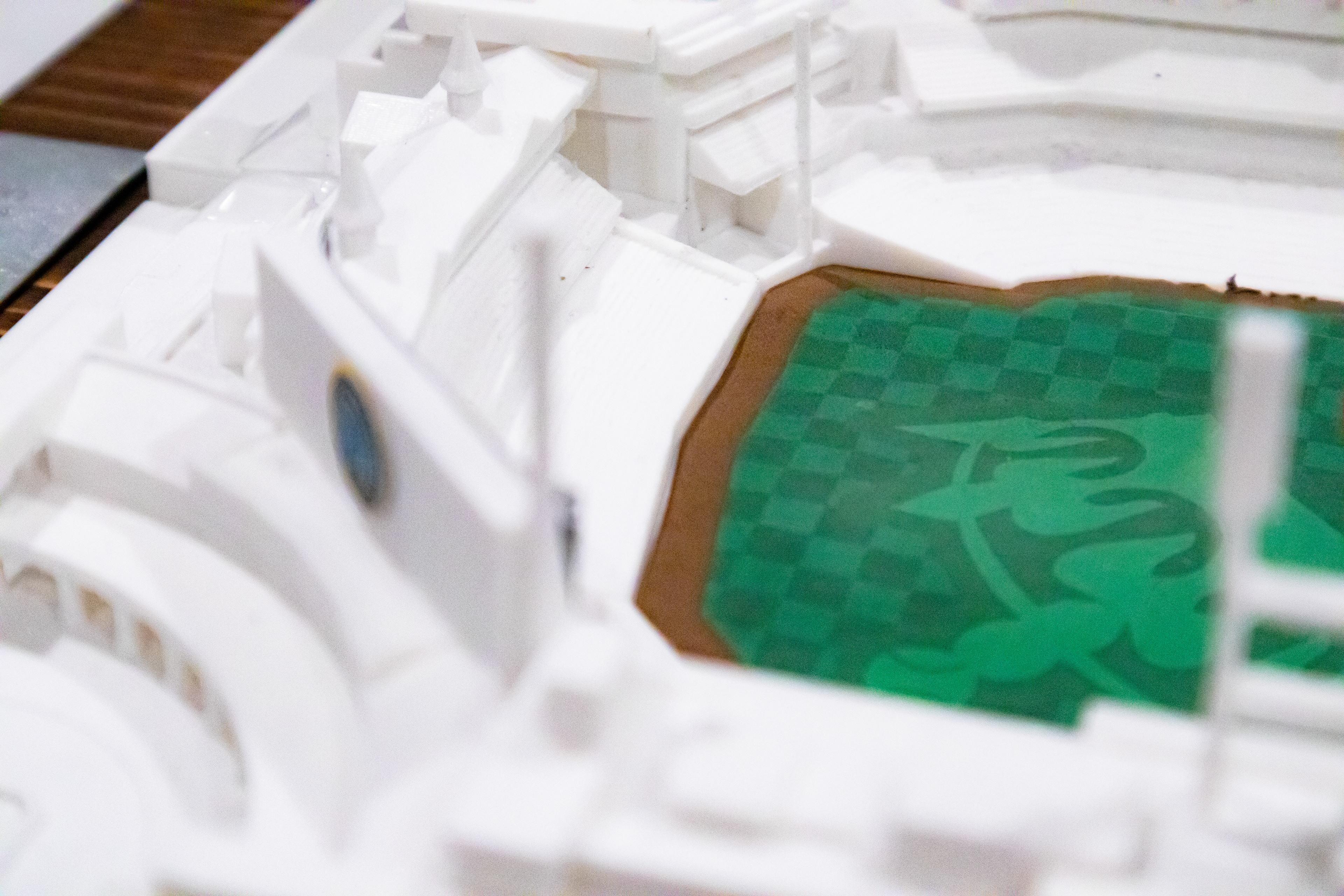
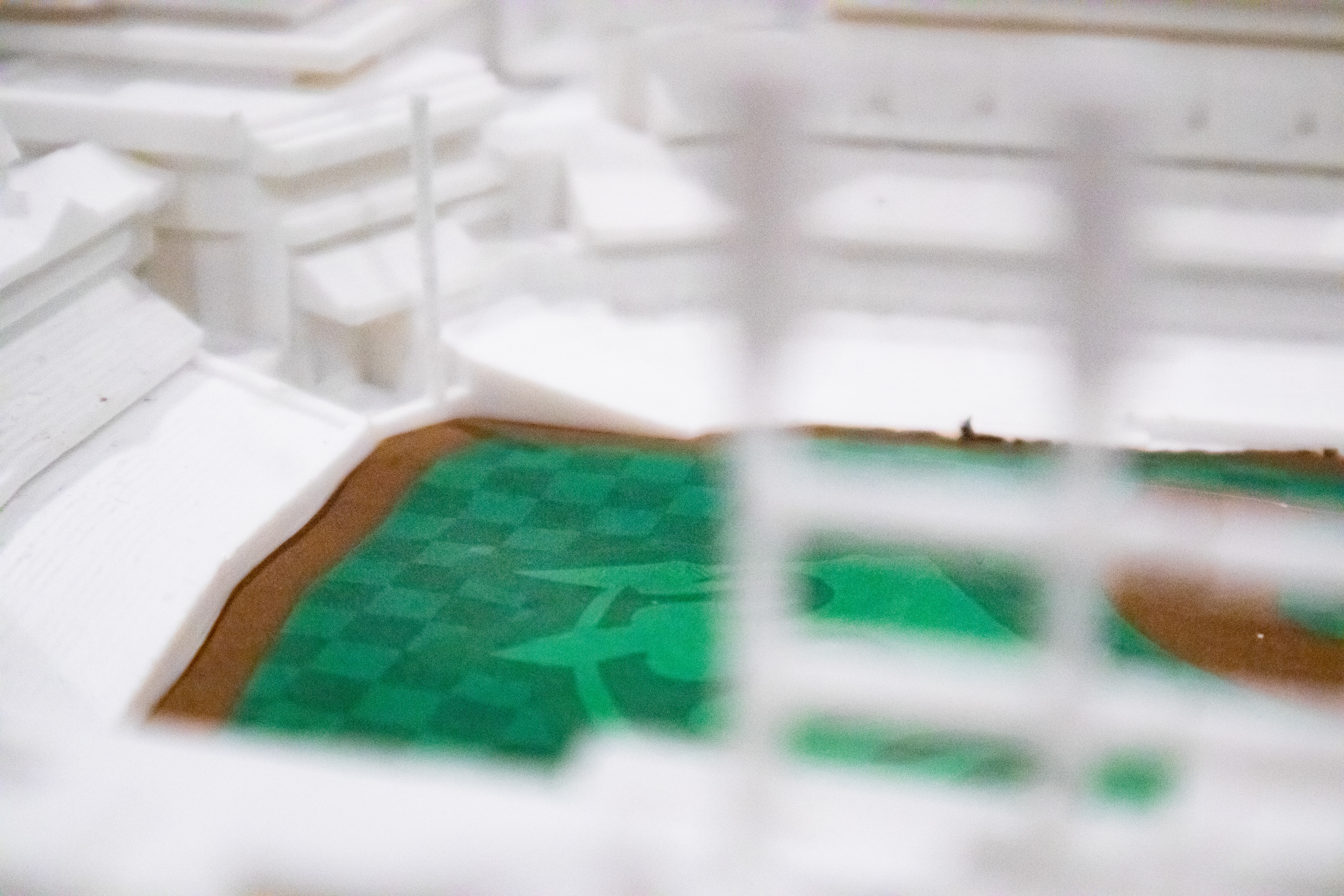
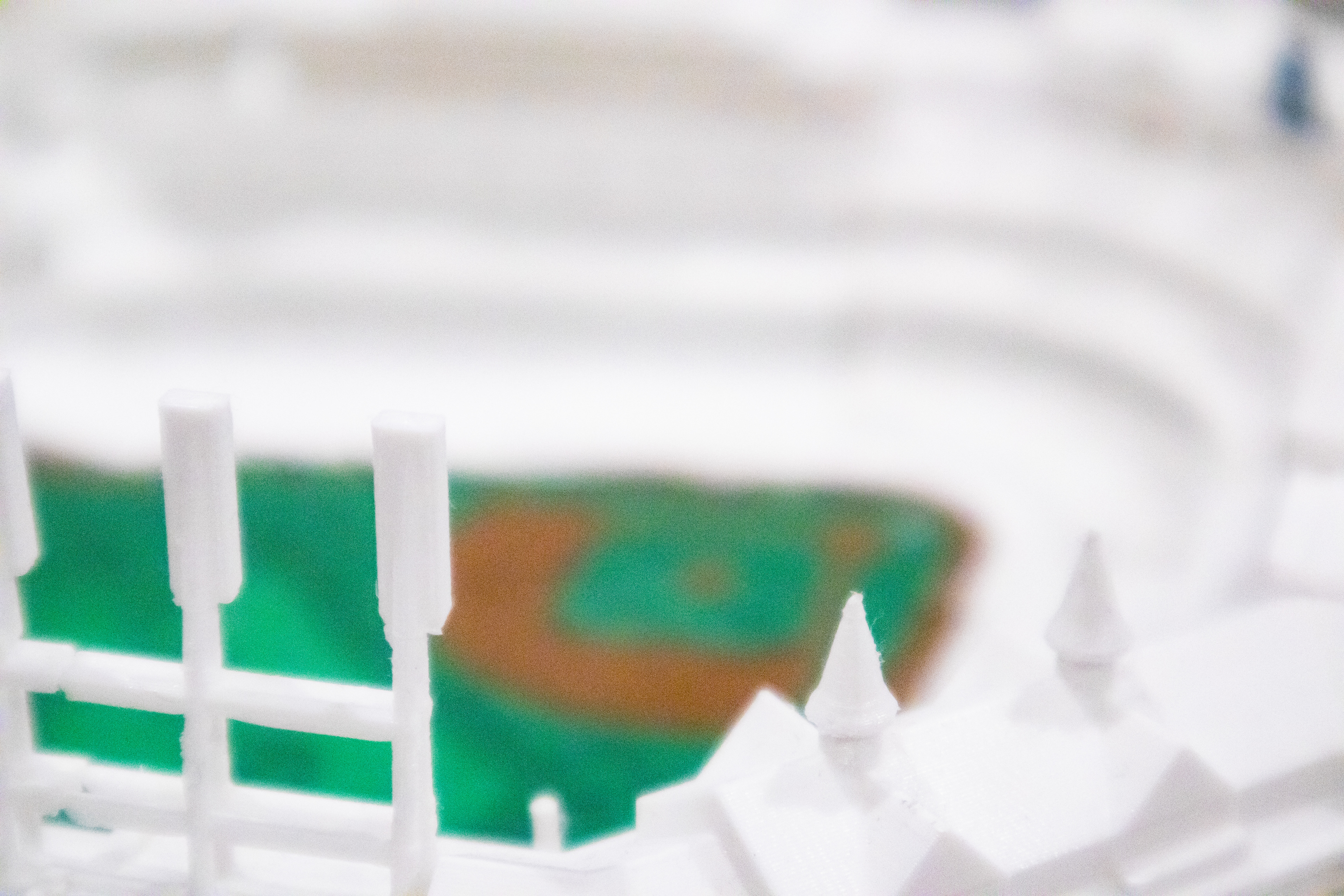
Above: 3D model of the stadium design in a small scale made to show off the whole stadium in an easier to digest manner. This piece is kept almost all white and clean as printed, outside of the necessary contextual graphics that have been placed throughout. Placed on a wooden and engrave base plate, this is a momentum of the team.

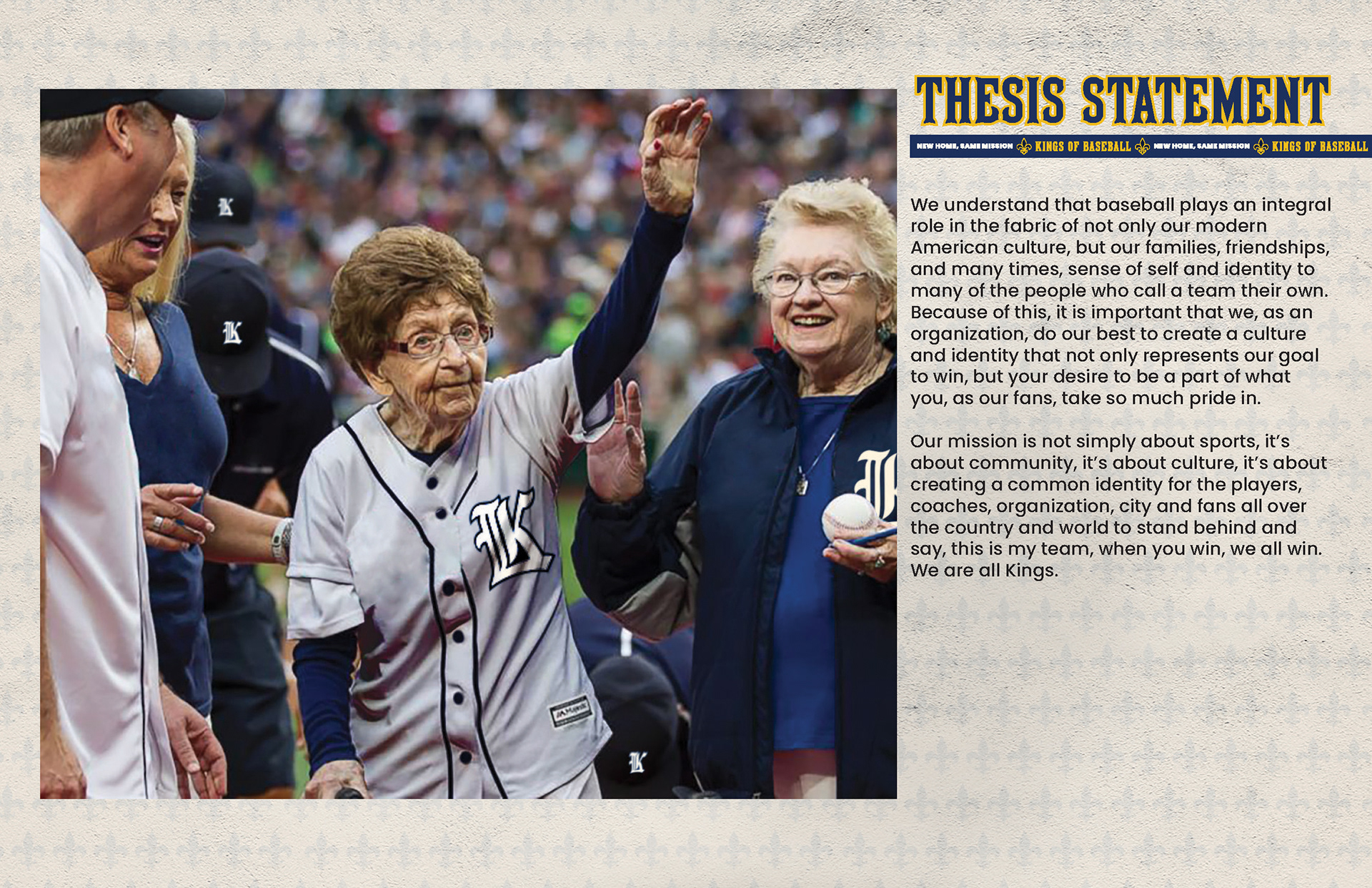
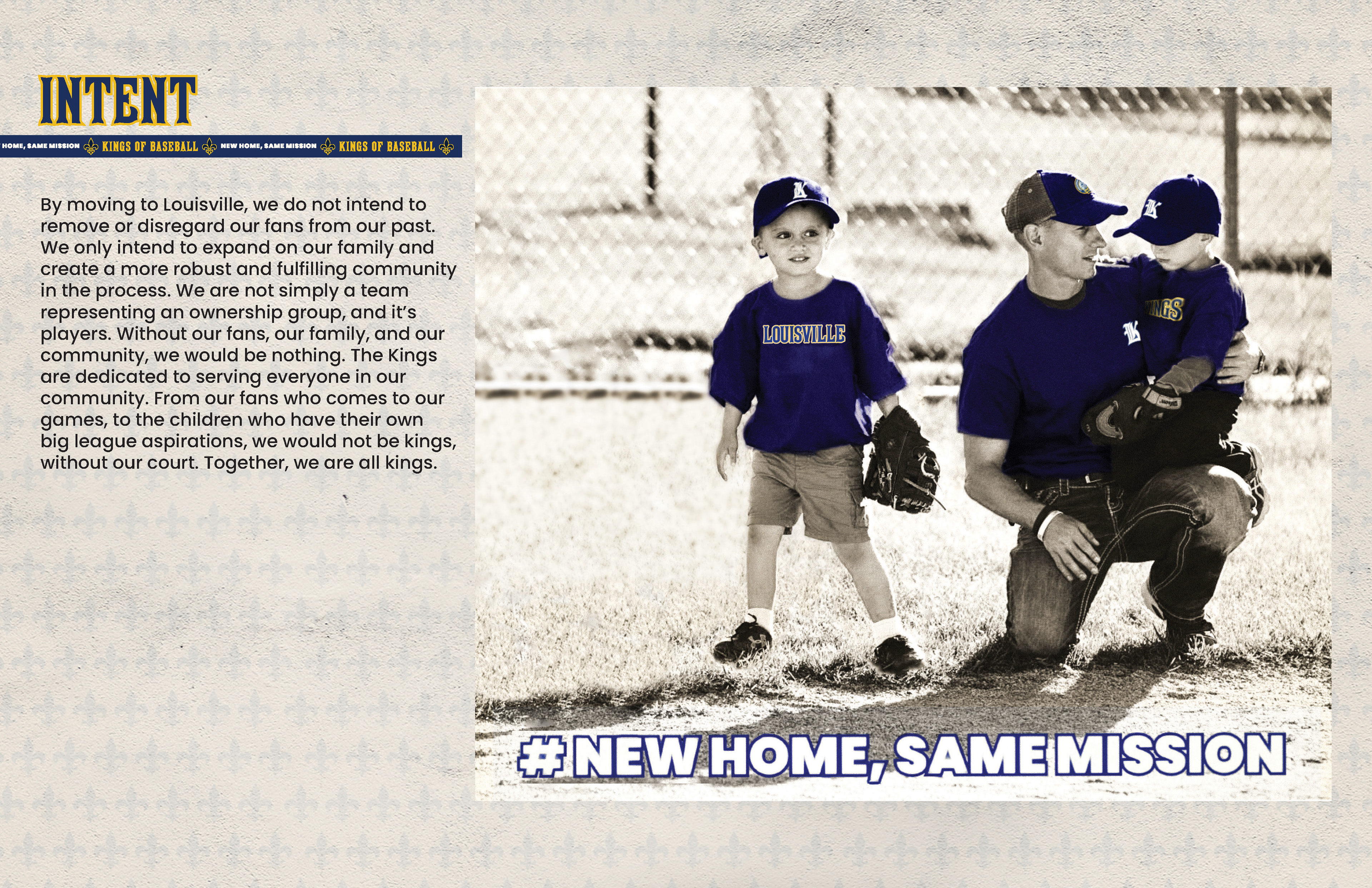
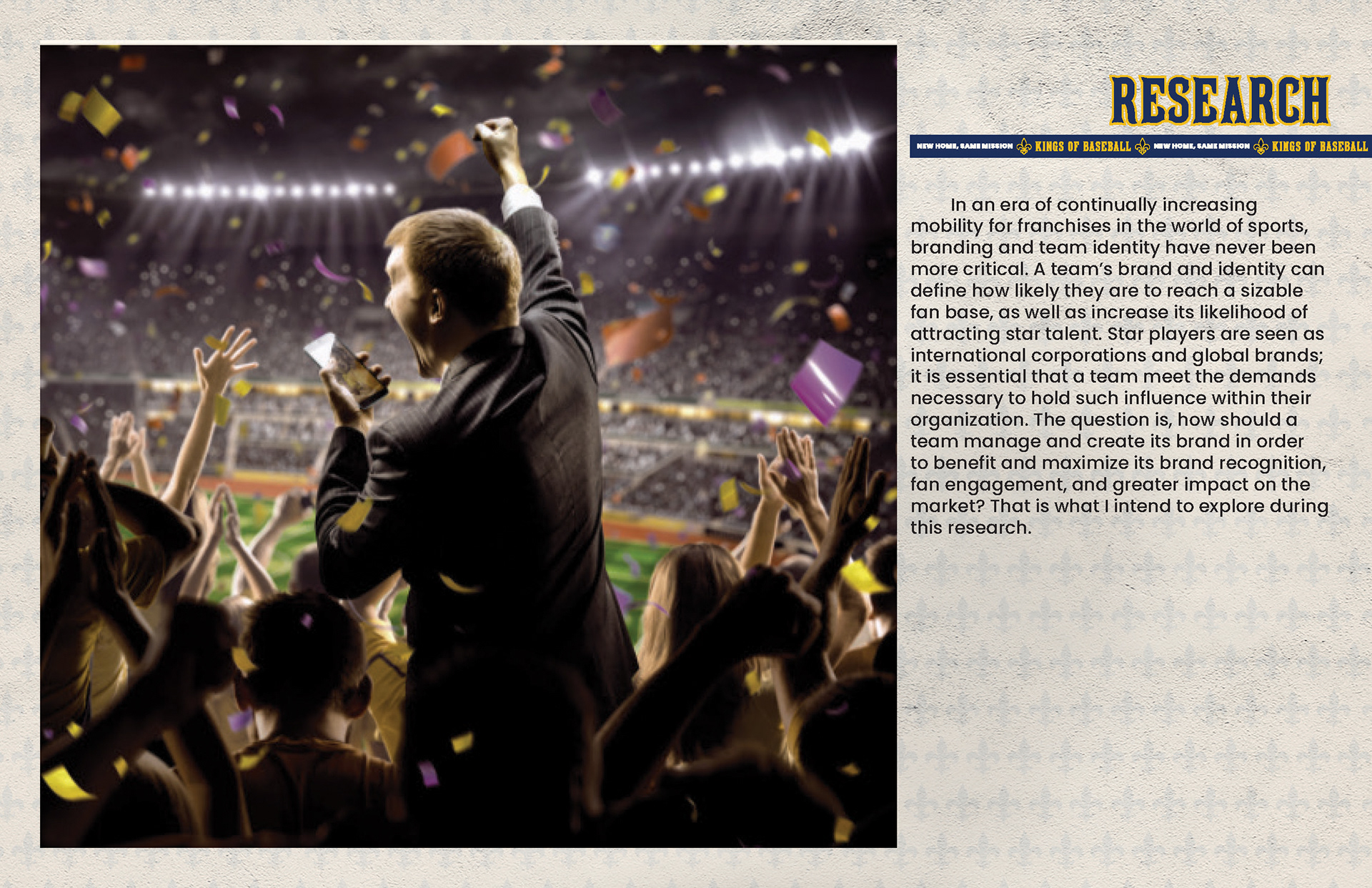
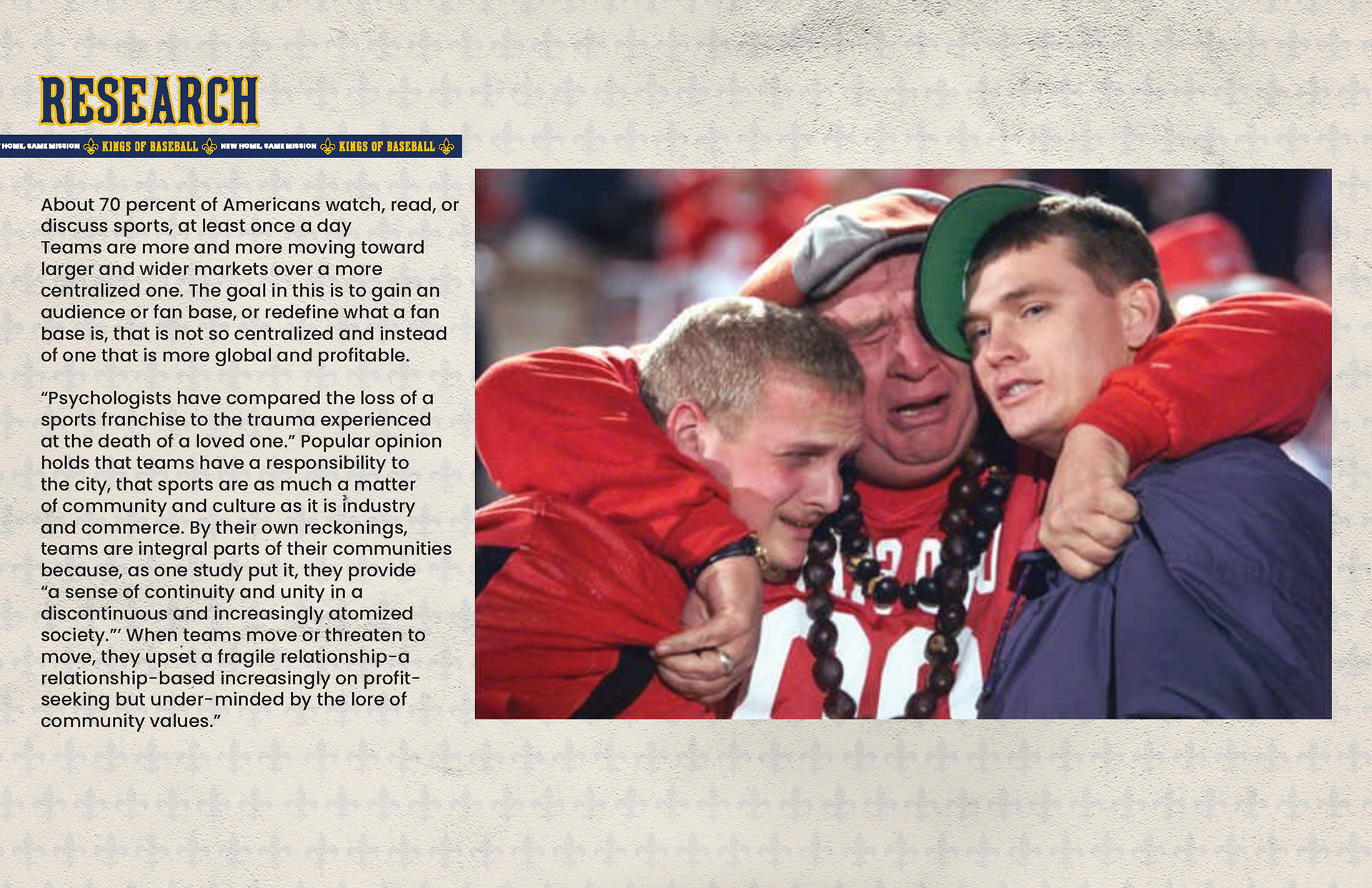
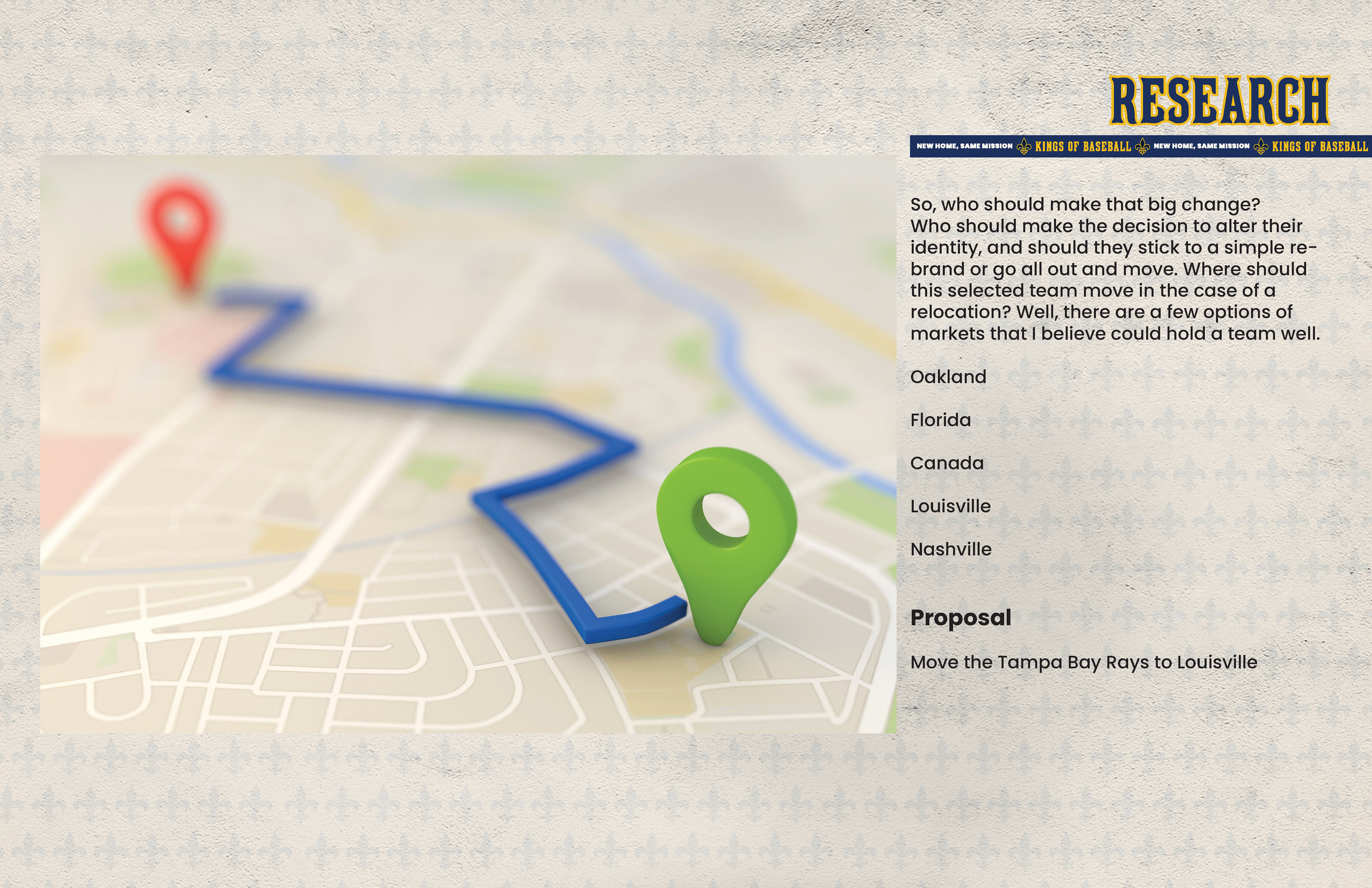
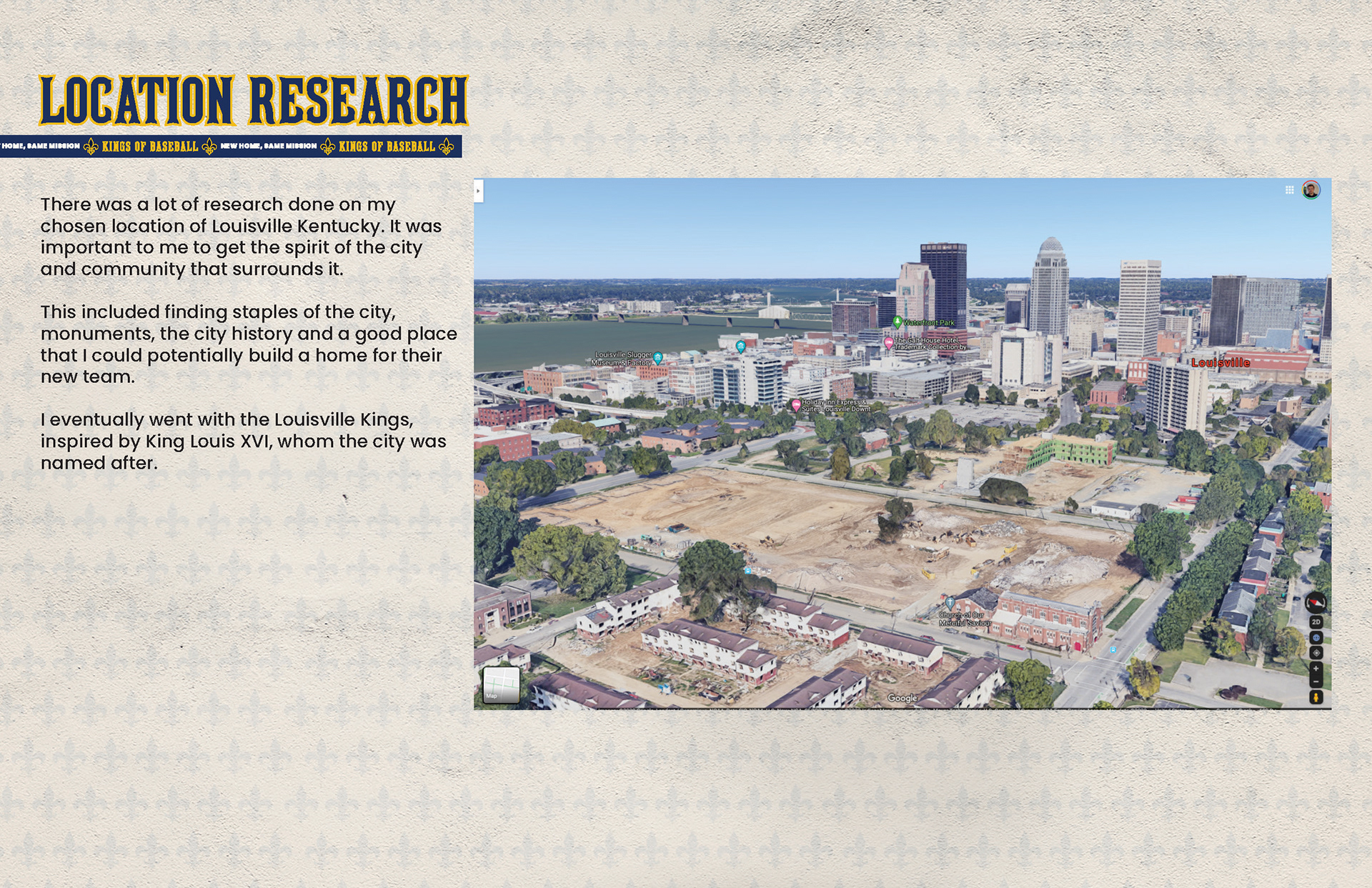
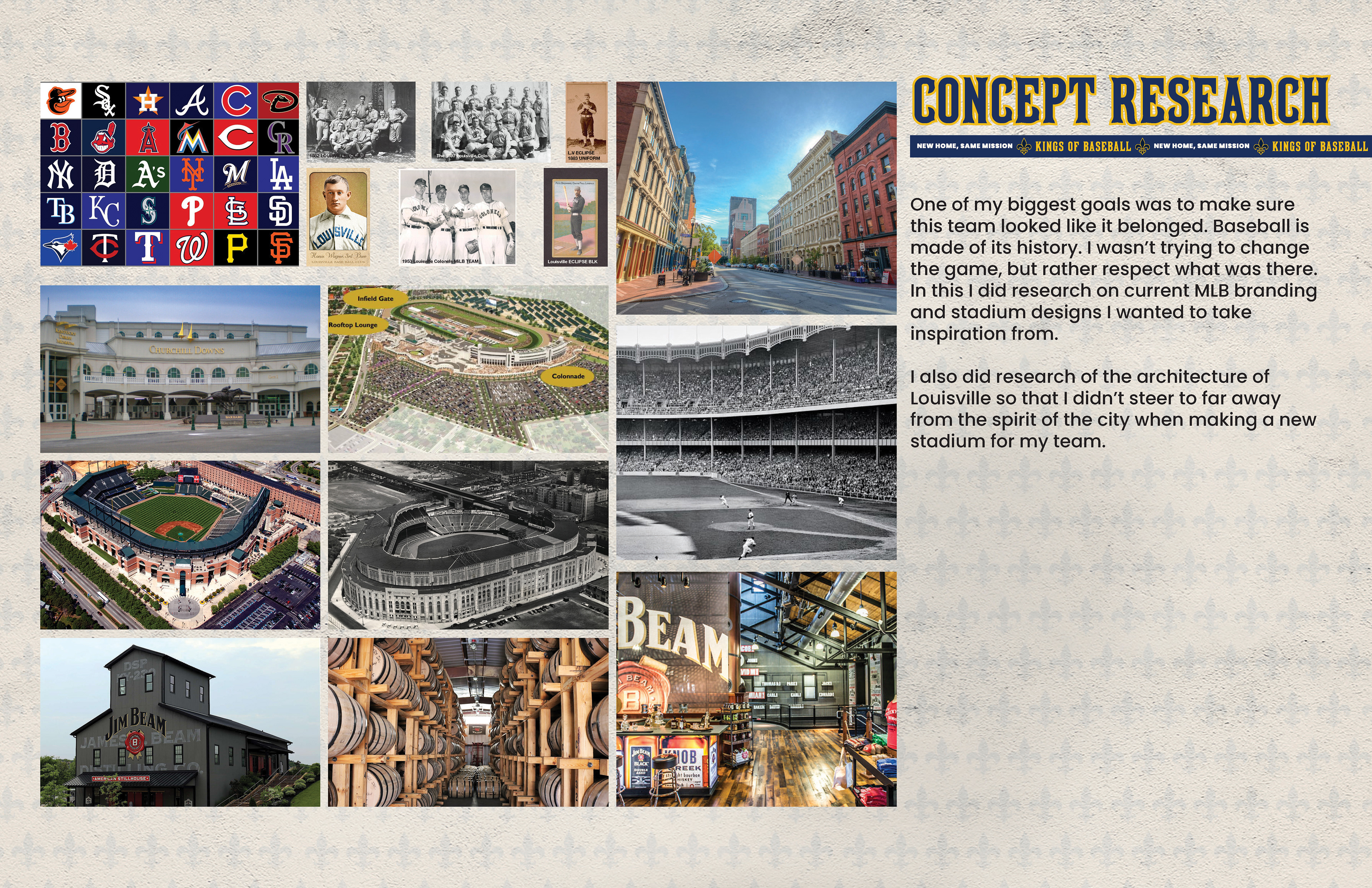
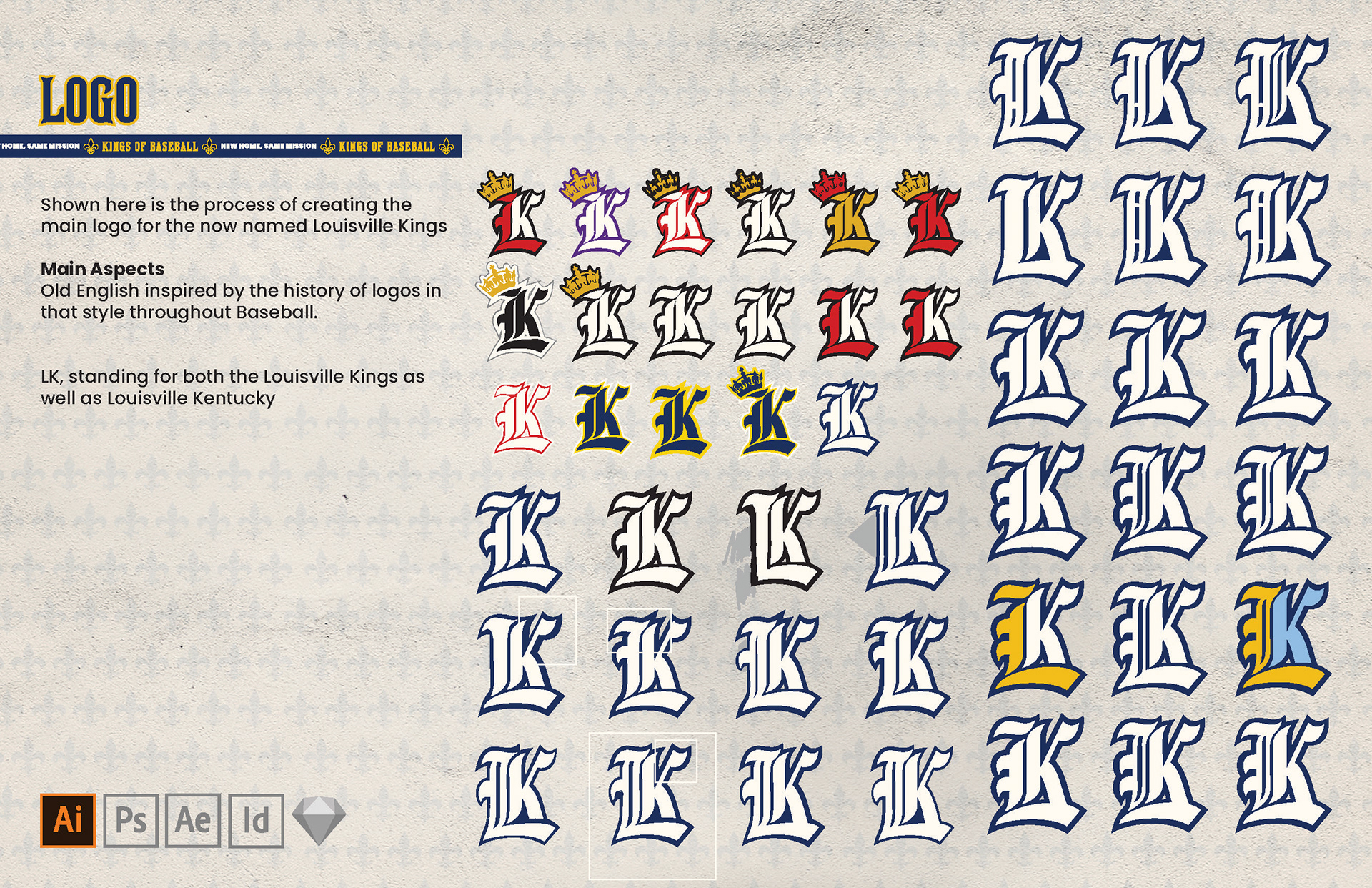
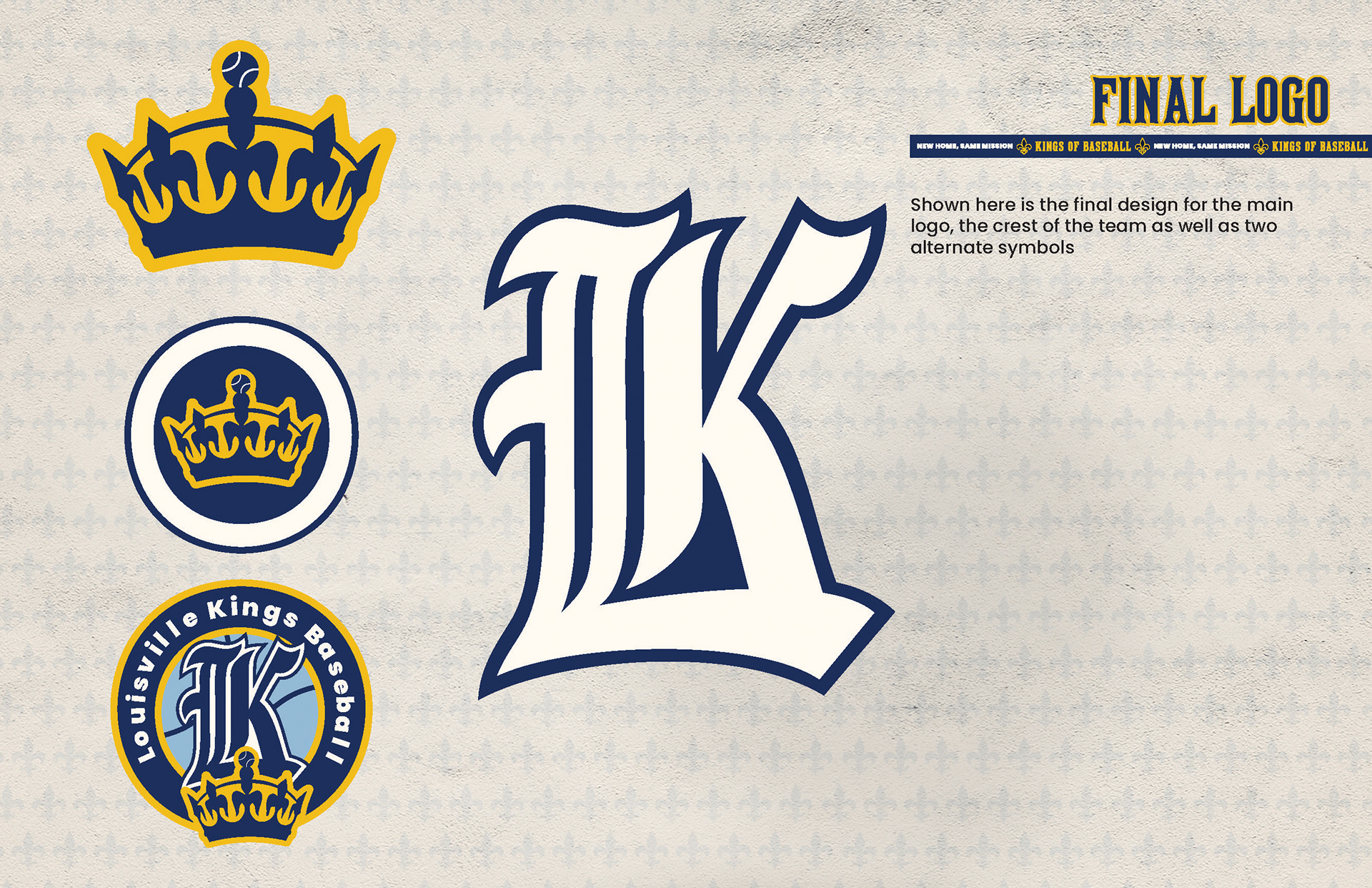
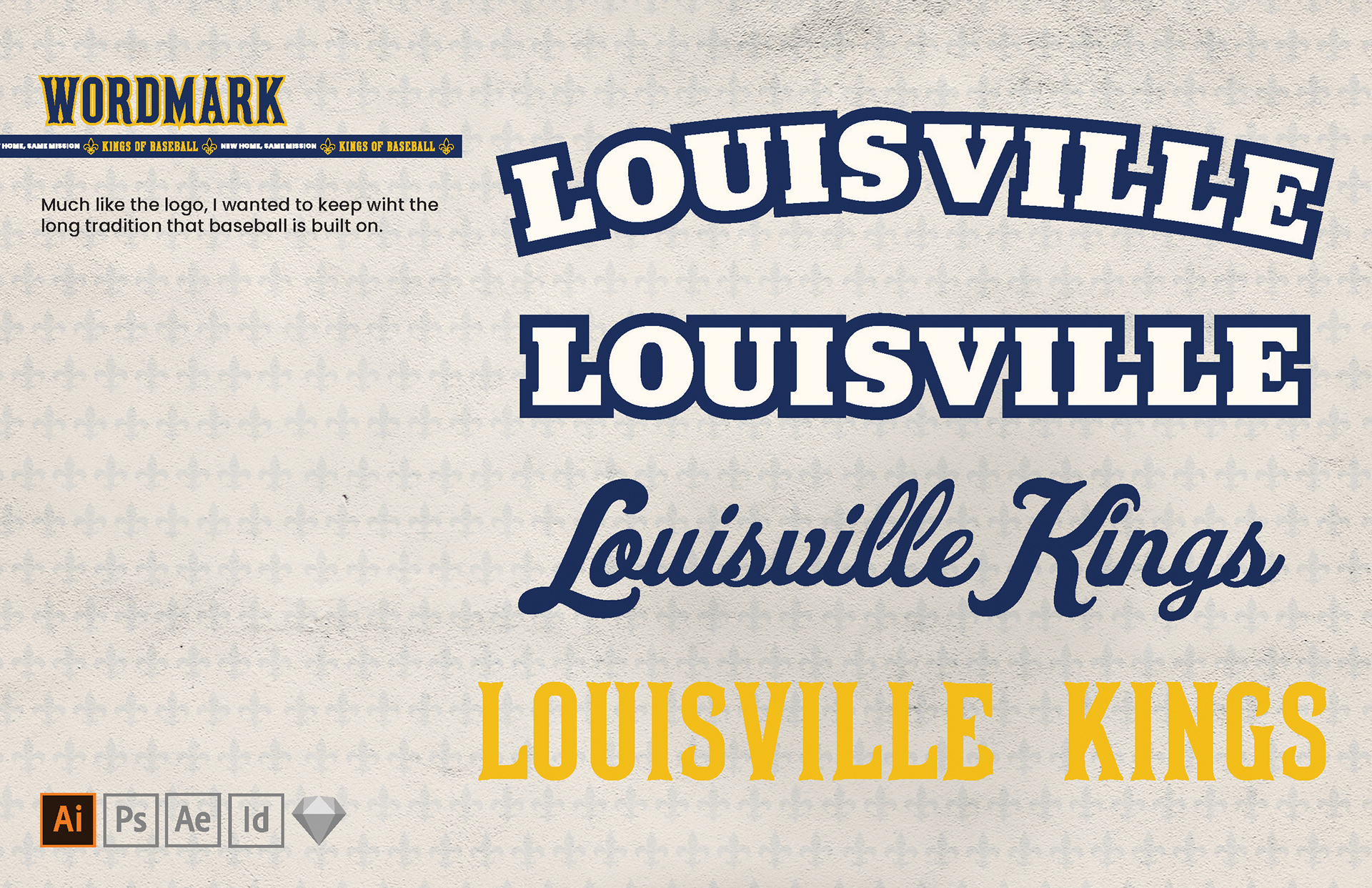
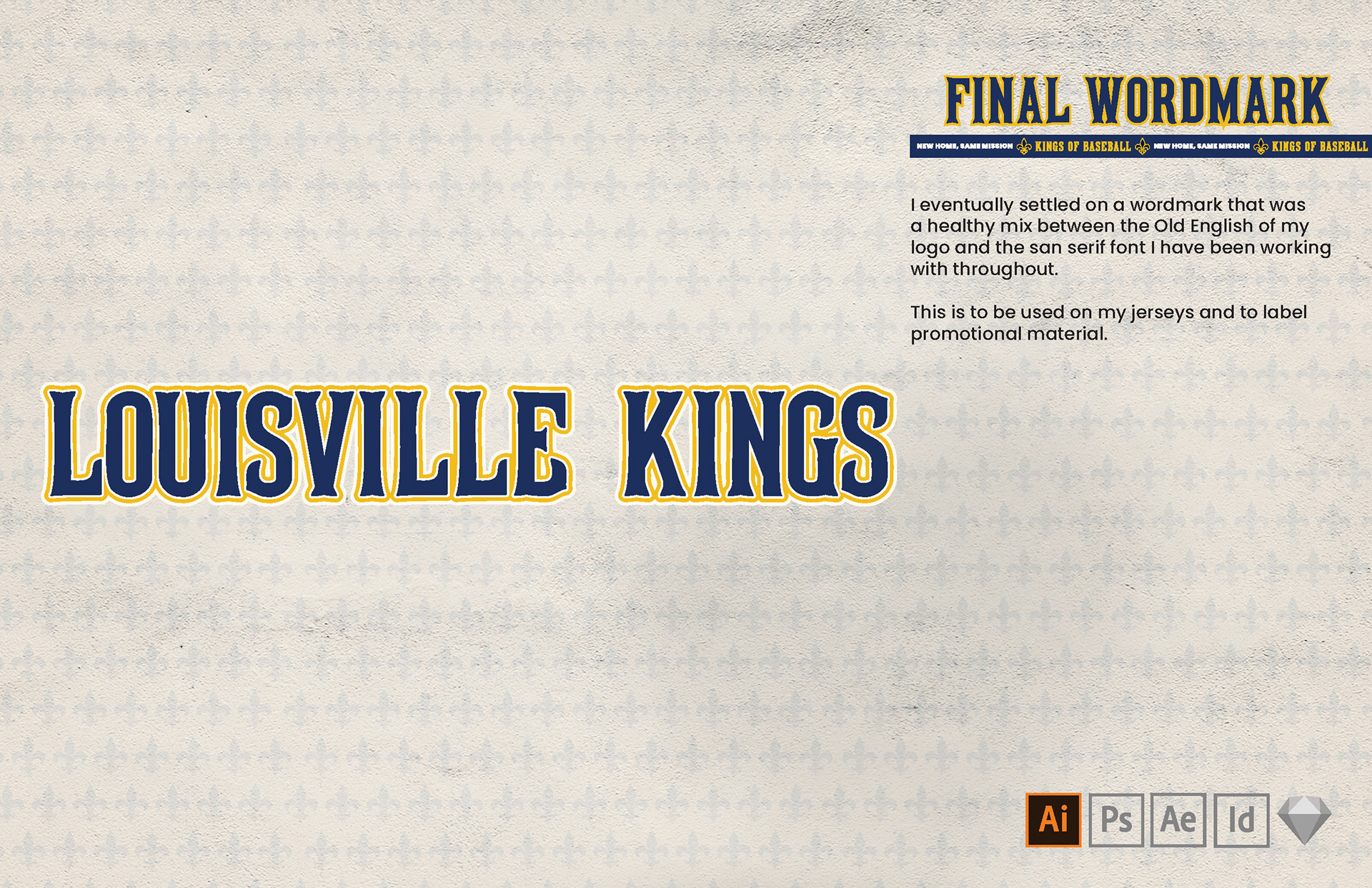
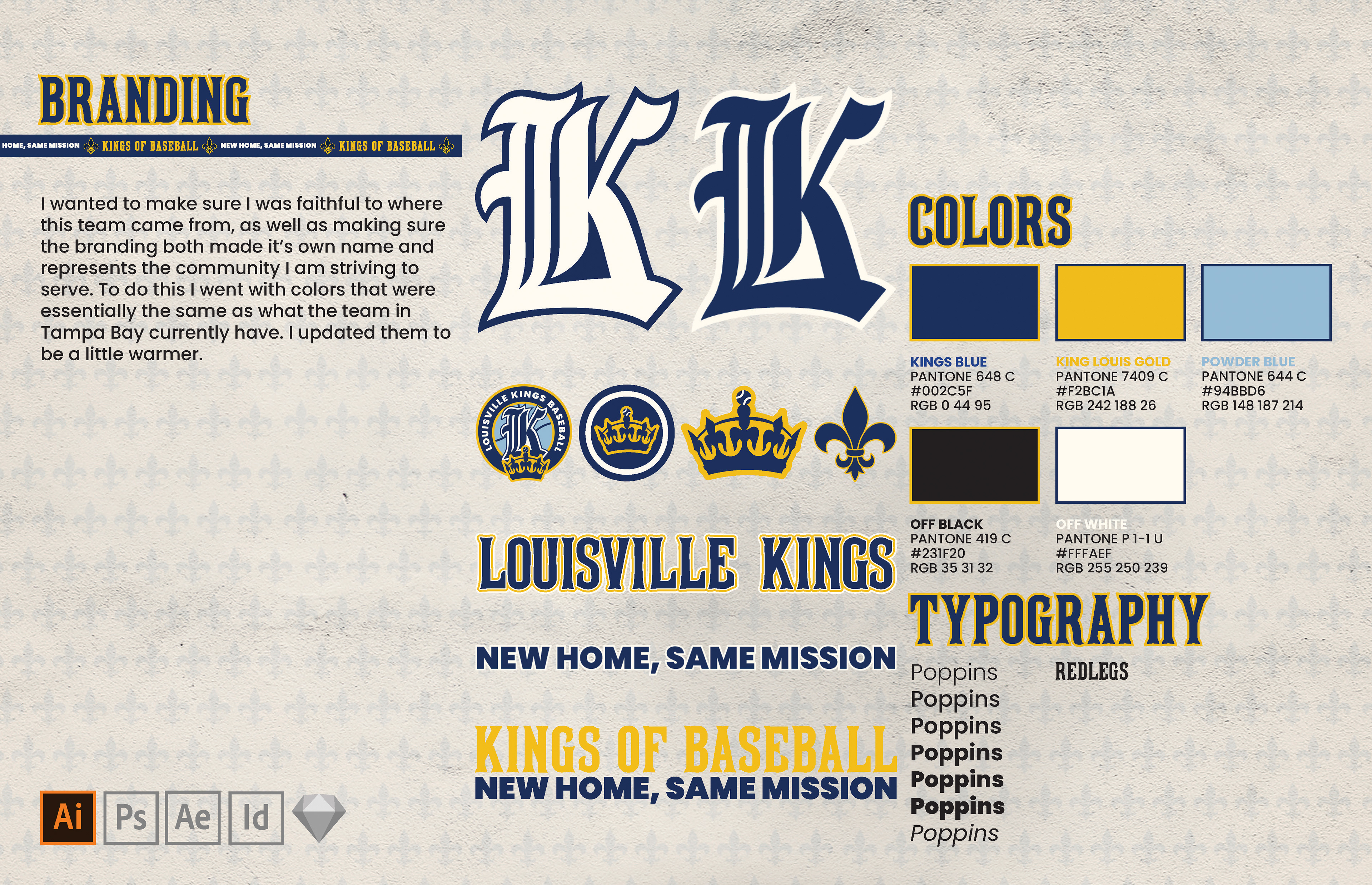
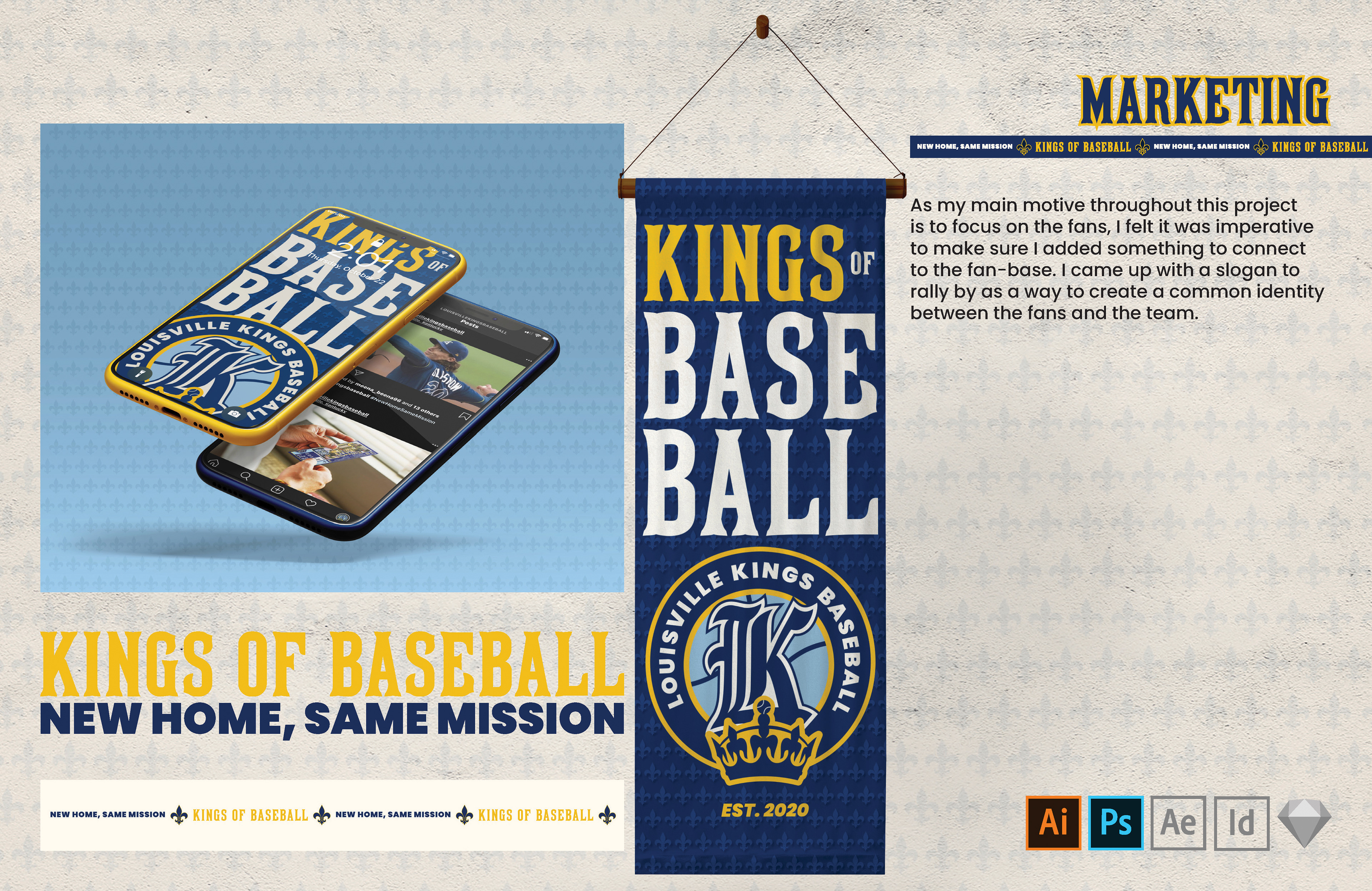
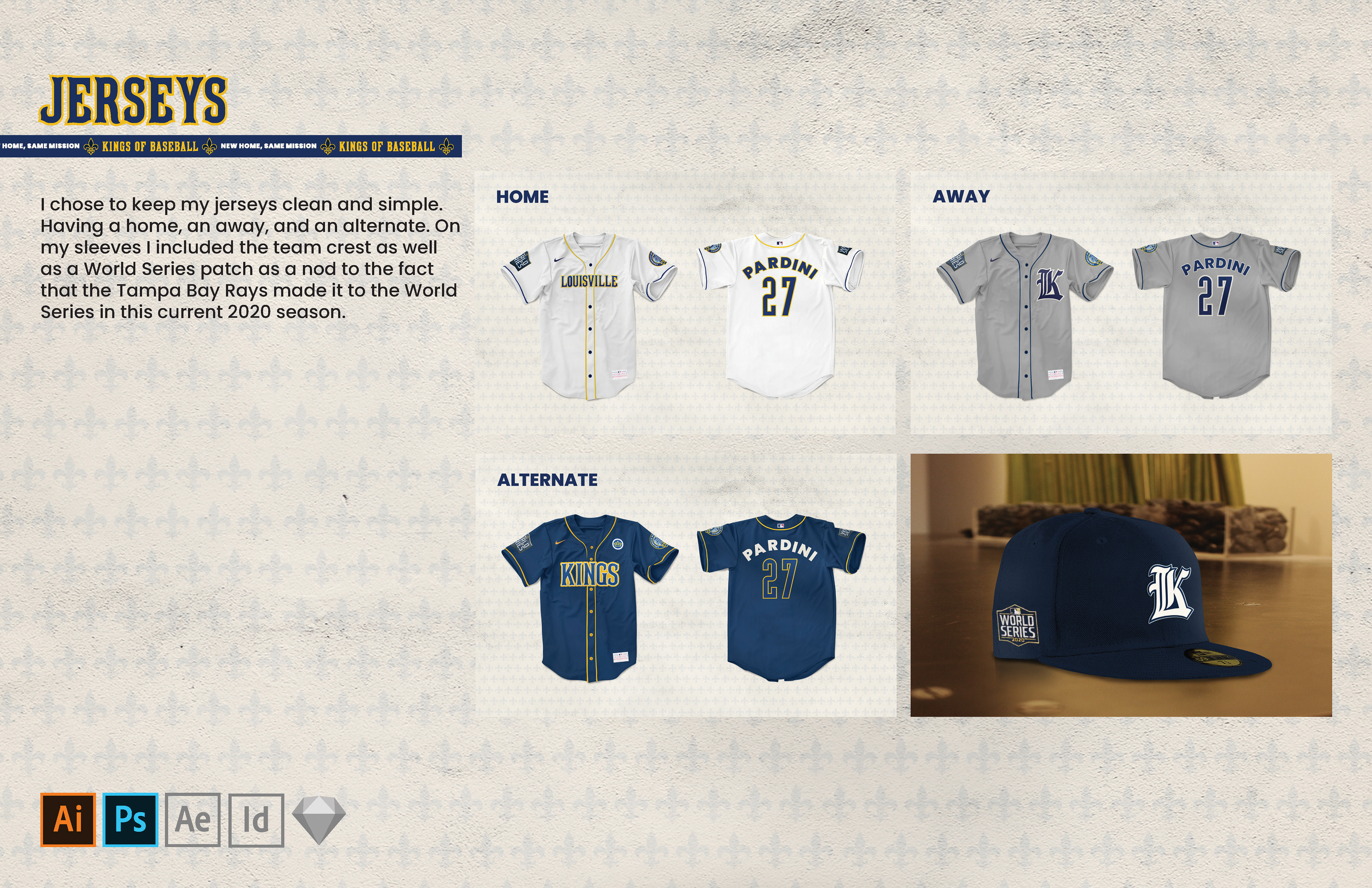
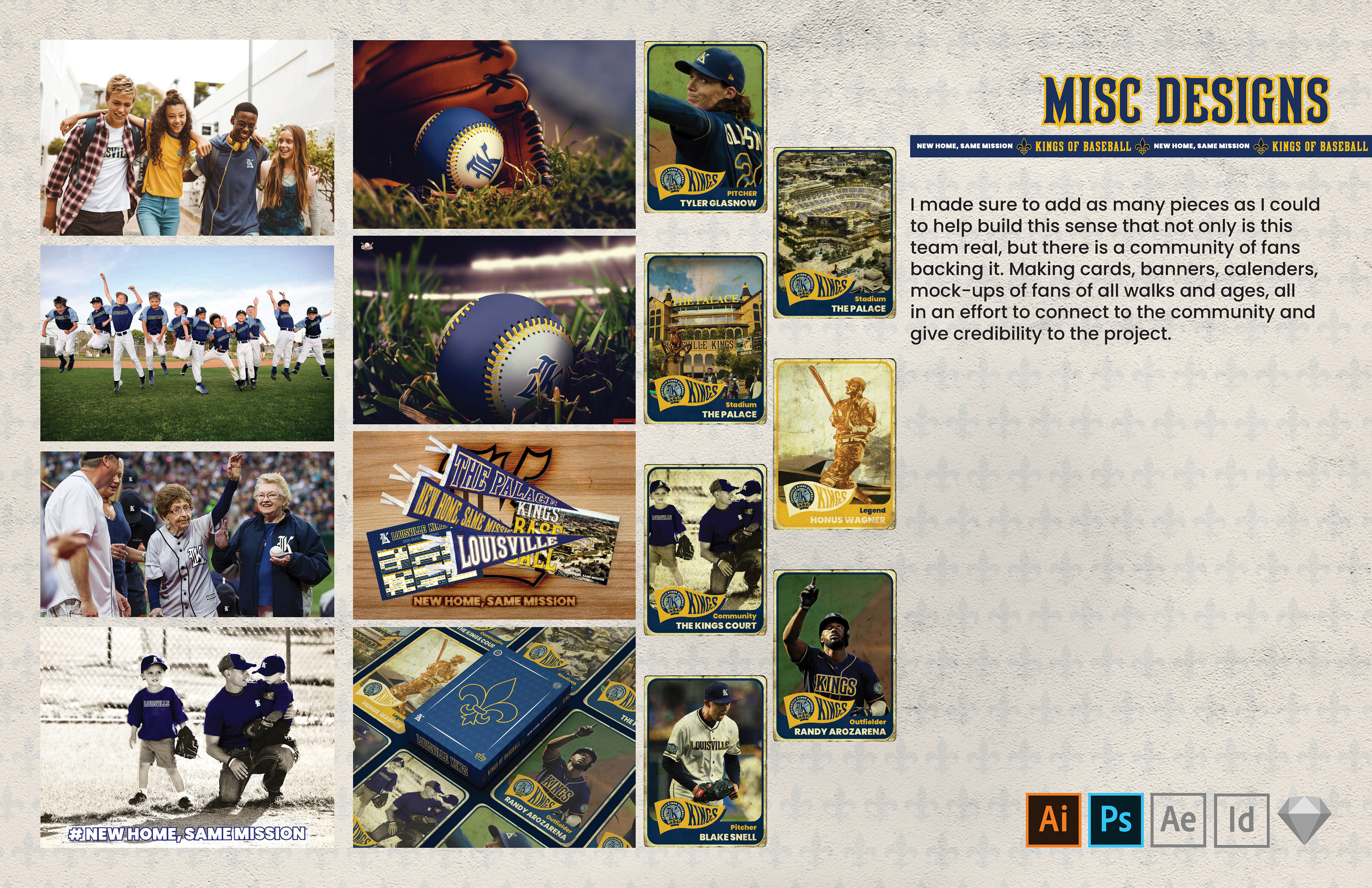


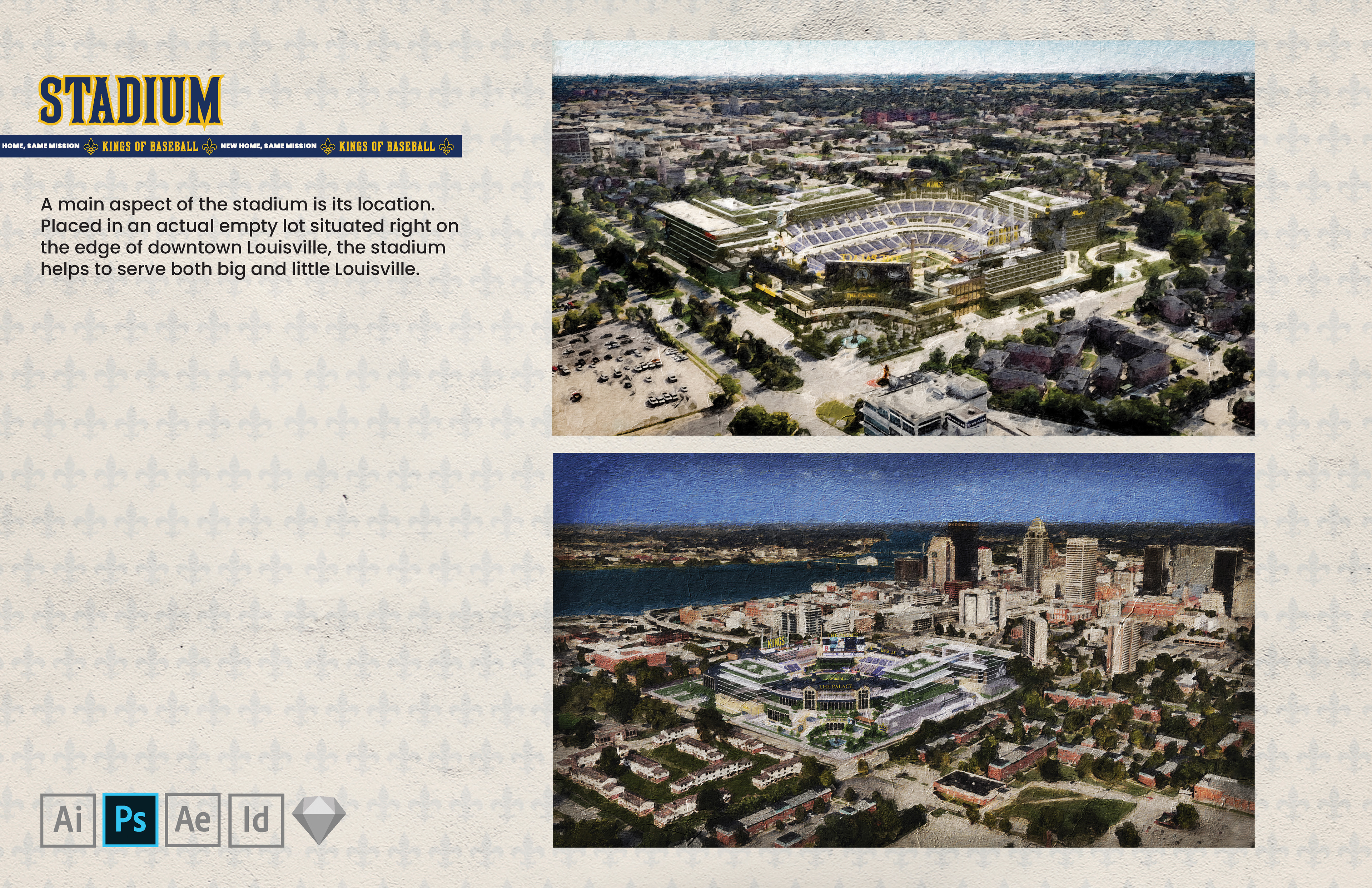
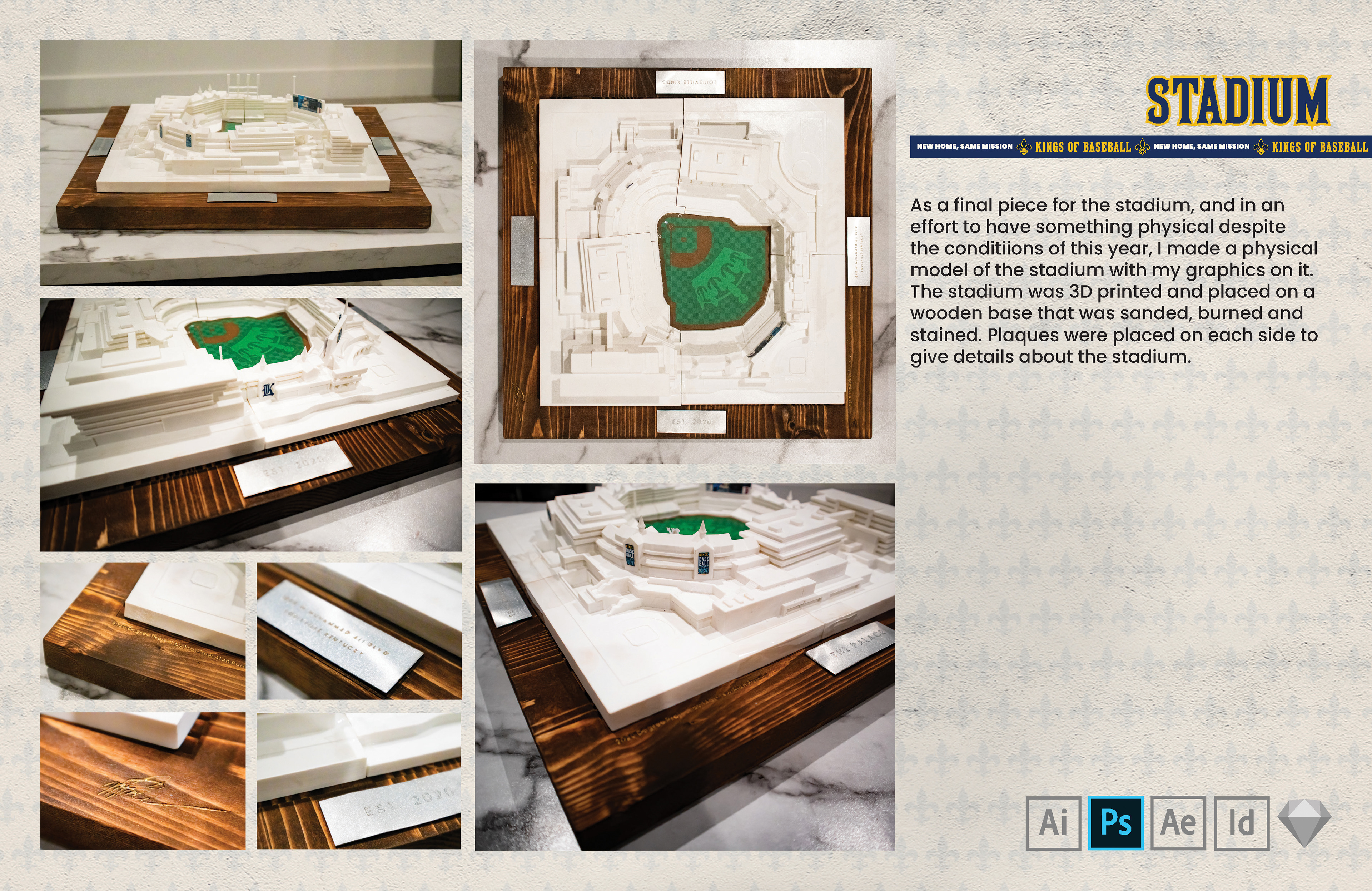

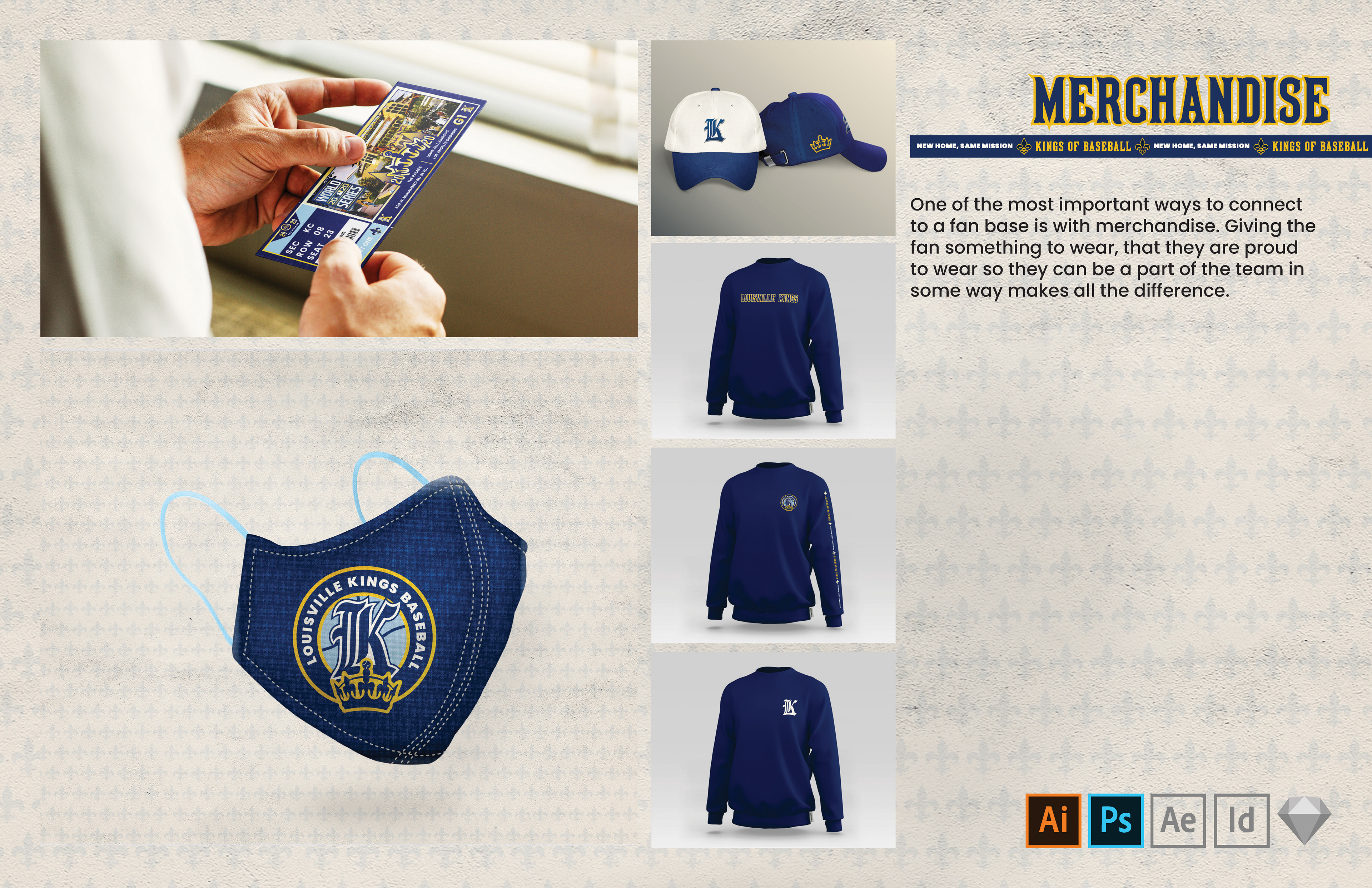
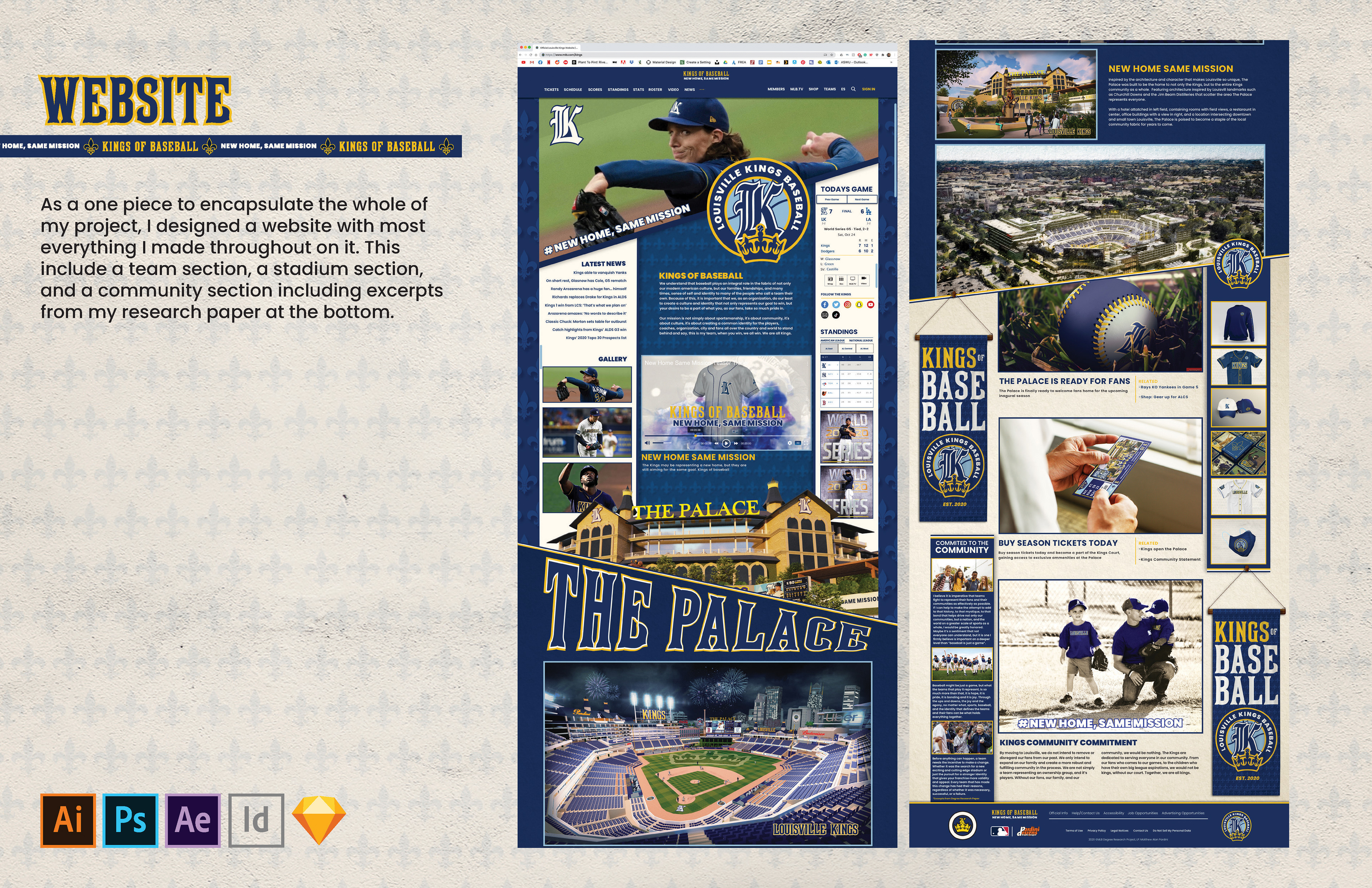
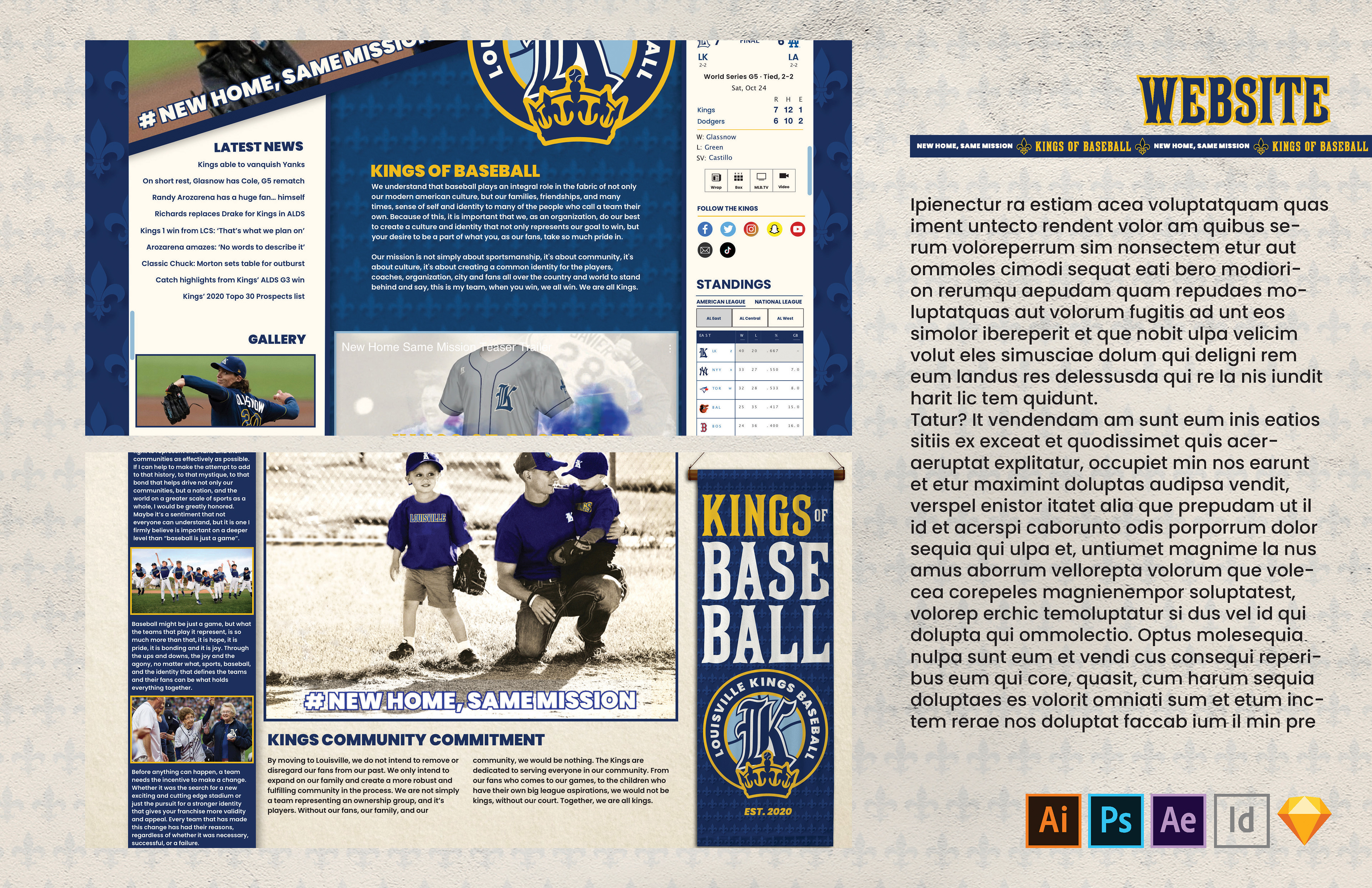
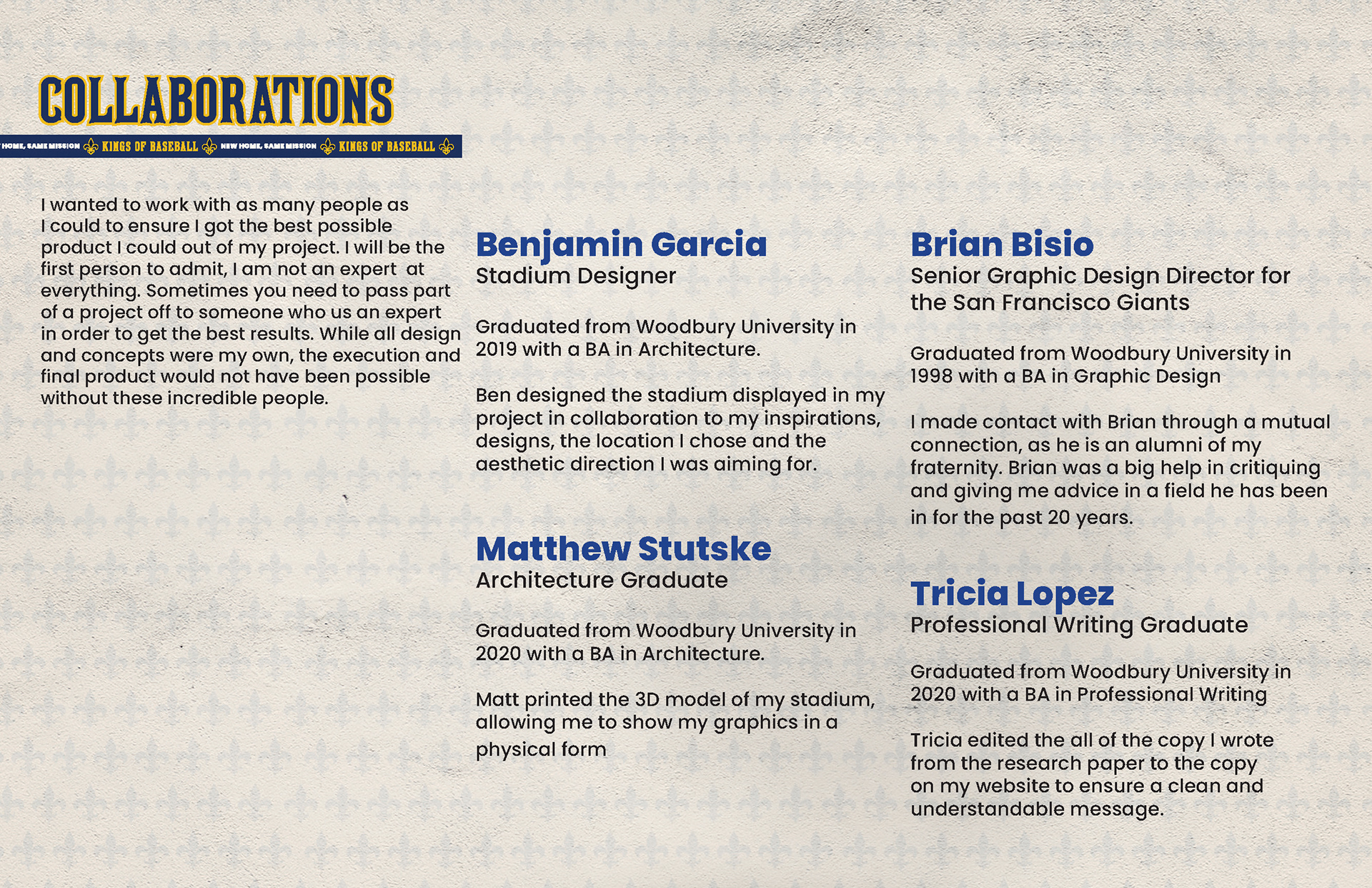
Above: Presentation sheets made to display the process and thought process of the entire project and my intentions. These sheets have and show off every part of the project.
Above: Two motion graphics made to be promotional pieces for the team. The first being made to be a hype video for the team and its upcoming season showing off the mission, to be baseball royalty and kings of baseball. The second being made to show off the stadium model as if it were a game day giveaway.
PROJECT JOURNEY
Welcome to my Degree Thesis project. As a lifelong baseball fan and a student of Graphic Design at Woodbury, I knew from my first experience at the Graphic Design Department that I wanted to focus on branding and identity. This project combines my passion for design with my love for baseball, representing a significant step in my journey to create something truly meaningful and personal.
THESIS STATEMENT AND PROJECT INTENT (FROM THE ORGANIZATION'S PERSPECTIVE)
We recognize that baseball is integral to American culture, impacting families, friendships, and personal identity. Our goal is to create a culture and identity that reflects our mission to win while honoring the pride our fans take in supporting their team. We aim to foster a community where players, coaches, and fans across the country and world unite under a common identity. As we move to Louisville, our goal is to expand our family and enhance our community, ensuring that our fans and supporters continue to be central to our identity. Together, we are all Kings.
We recognize that baseball is integral to American culture, impacting families, friendships, and personal identity. Our goal is to create a culture and identity that reflects our mission to win while honoring the pride our fans take in supporting their team. We aim to foster a community where players, coaches, and fans across the country and world unite under a common identity. As we move to Louisville, our goal is to expand our family and enhance our community, ensuring that our fans and supporters continue to be central to our identity. Together, we are all Kings.
RESEARCH (EXCERPTS FROM MY THESIS RESEARCH PAPER)
In today's sports world, effective branding and team identity are crucial due to increasing franchise mobility. A strong brand helps attract fans and star players, who are seen as global brands themselves. My research explores how teams can manage and create their brand to maximize recognition, fan engagement, and market impact. With sports audiences expanding globally, teams must balance maintaining local community ties with pursuing wider market appeal. Missteps in this balance can harm a franchise’s reputation and community connection, as seen with teams like the Los Angeles Rams and Juventus.
In today's sports world, effective branding and team identity are crucial due to increasing franchise mobility. A strong brand helps attract fans and star players, who are seen as global brands themselves. My research explores how teams can manage and create their brand to maximize recognition, fan engagement, and market impact. With sports audiences expanding globally, teams must balance maintaining local community ties with pursuing wider market appeal. Missteps in this balance can harm a franchise’s reputation and community connection, as seen with teams like the Los Angeles Rams and Juventus.
WHY SPORTS MATTER
Sports, especially baseball, are deeply woven into the fabric of local communities and the nation. They provide a sense of identity and unity, affecting both teams and their fans. Baseball has a profound impact on lives, bonding families and communities. Notable moments, like the New York Yankees’ response to September 11 or the All-American Girls Professional Baseball League during WWII, illustrate how sports can be more than just games—they can be symbols of hope and unity. My goal is to contribute to this tradition, enhancing the connection between teams and their fans and celebrating the powerful role of sports in our lives.
Sports, especially baseball, are deeply woven into the fabric of local communities and the nation. They provide a sense of identity and unity, affecting both teams and their fans. Baseball has a profound impact on lives, bonding families and communities. Notable moments, like the New York Yankees’ response to September 11 or the All-American Girls Professional Baseball League during WWII, illustrate how sports can be more than just games—they can be symbols of hope and unity. My goal is to contribute to this tradition, enhancing the connection between teams and their fans and celebrating the powerful role of sports in our lives.

